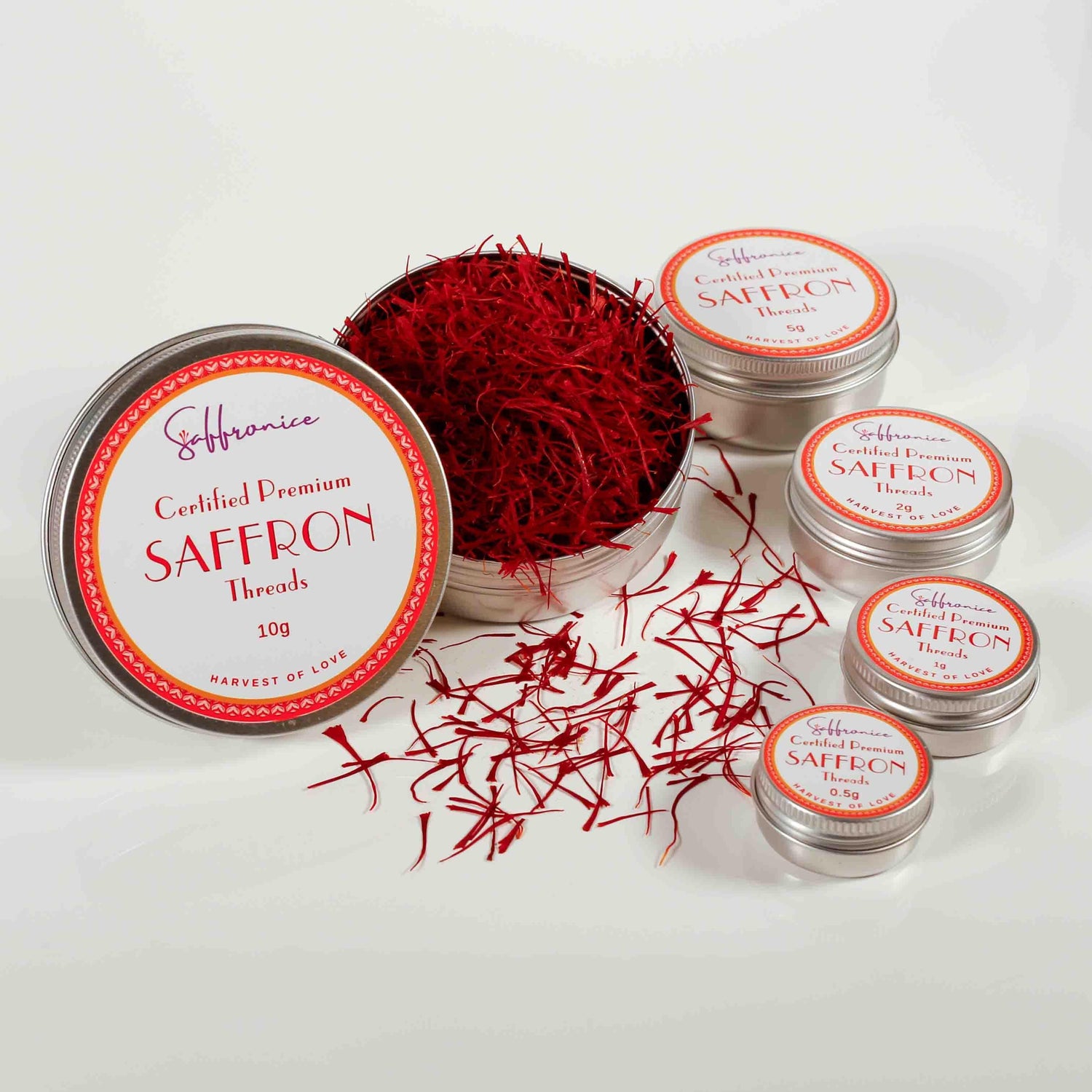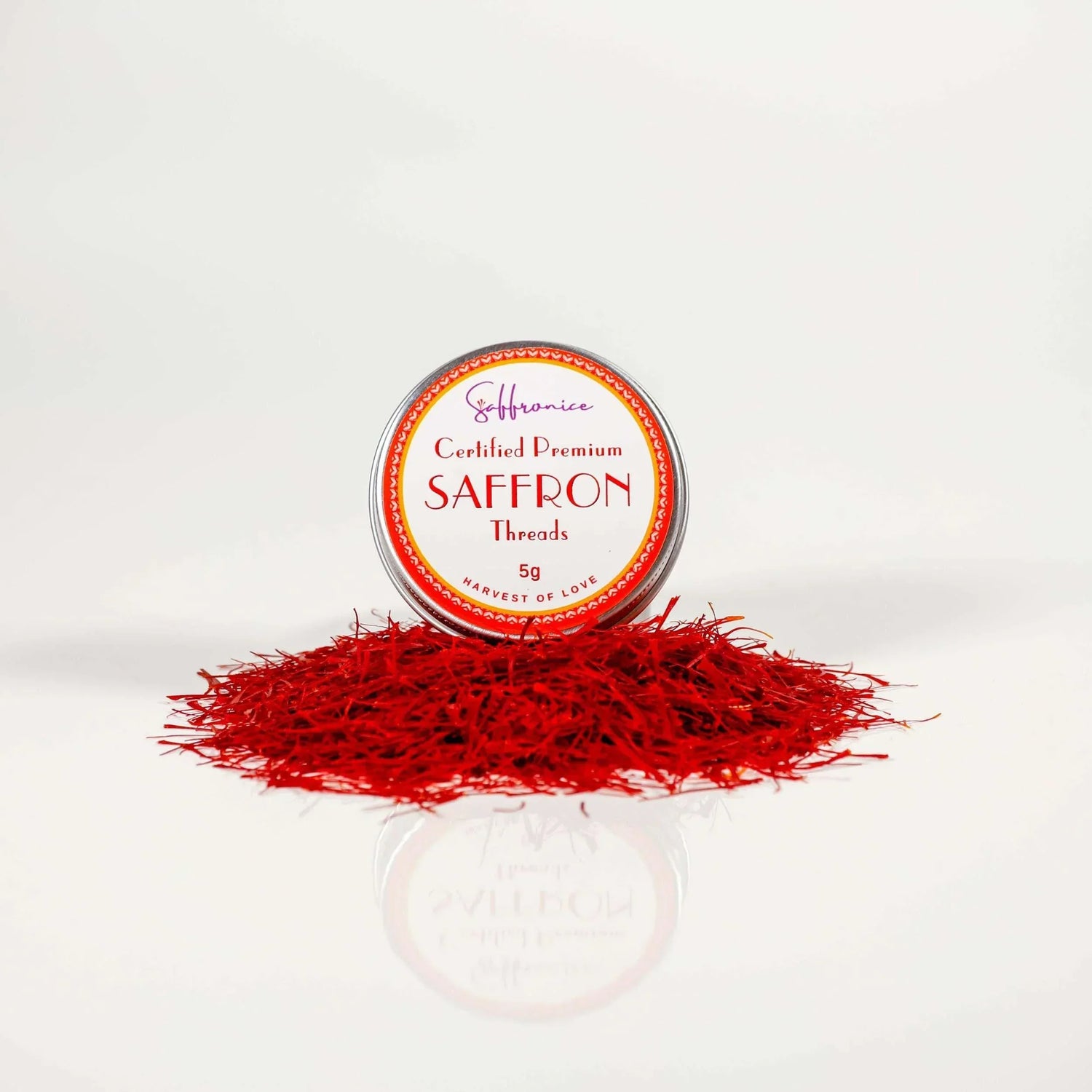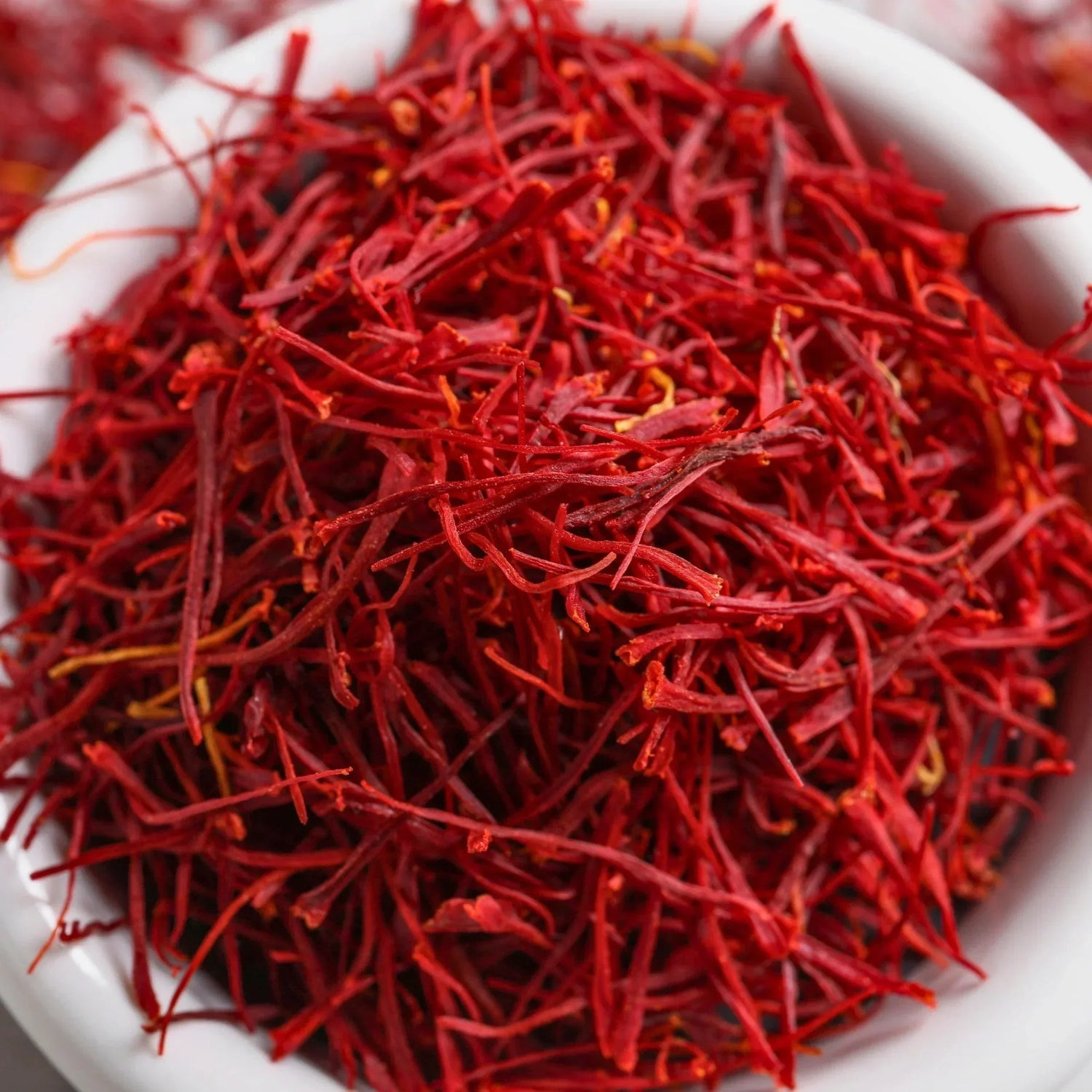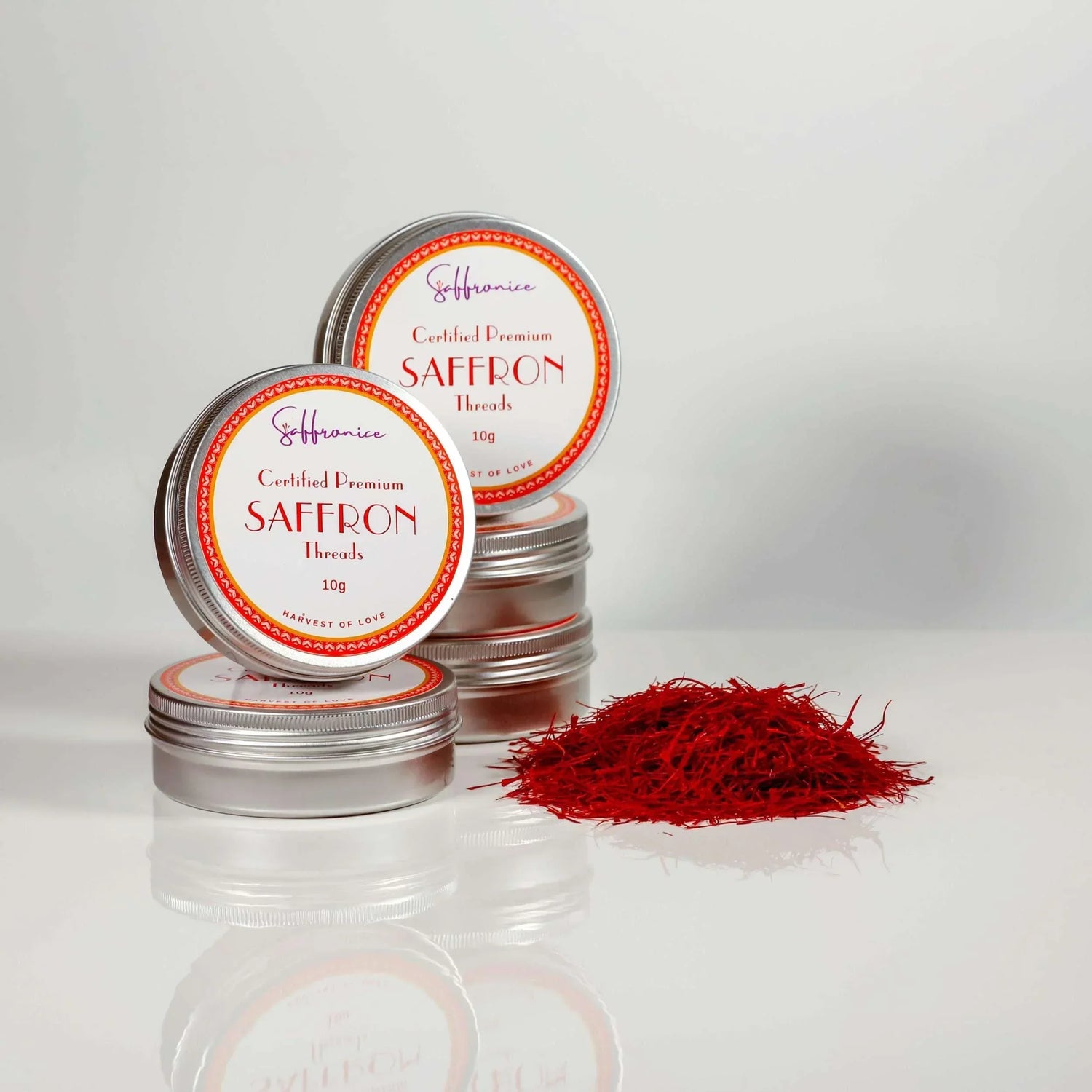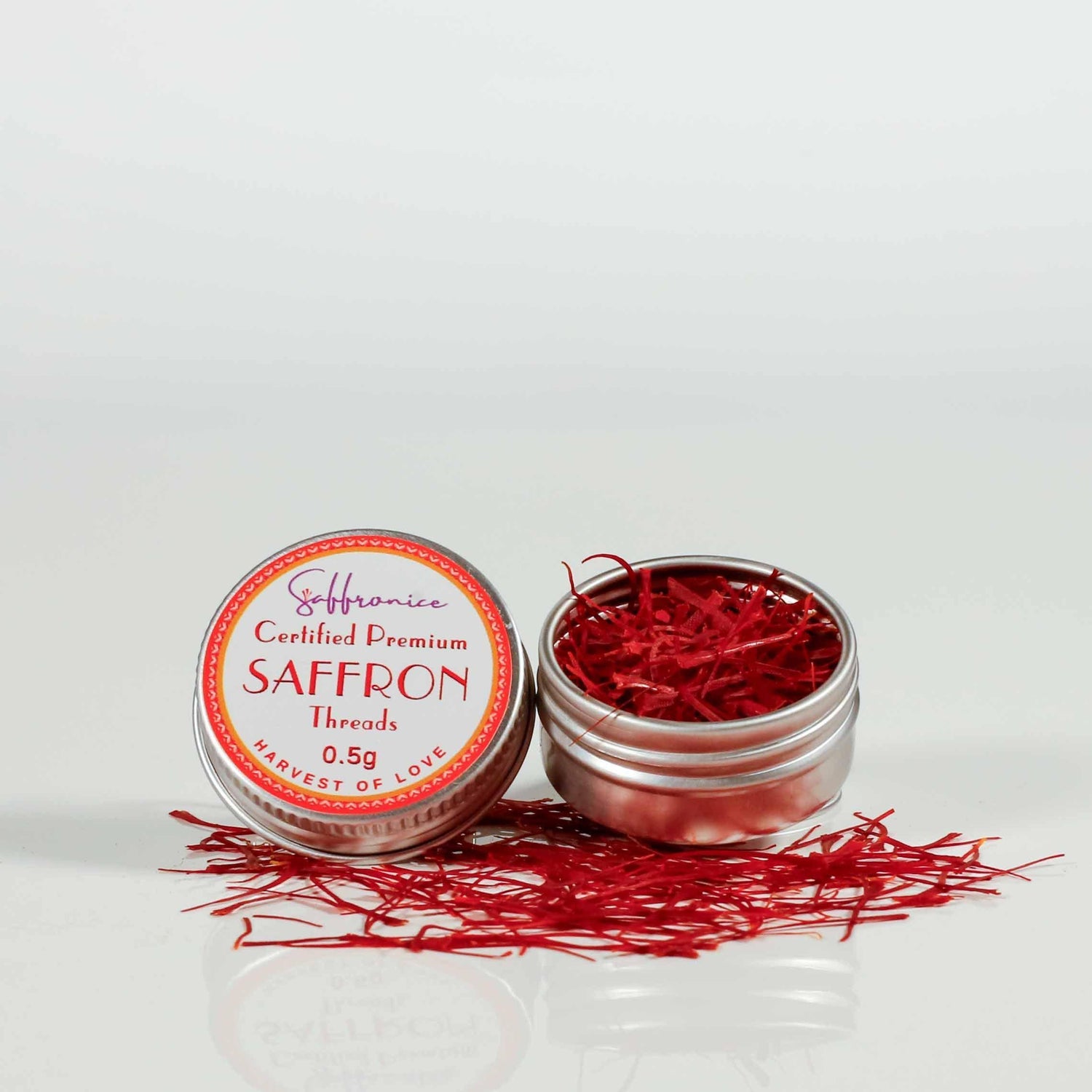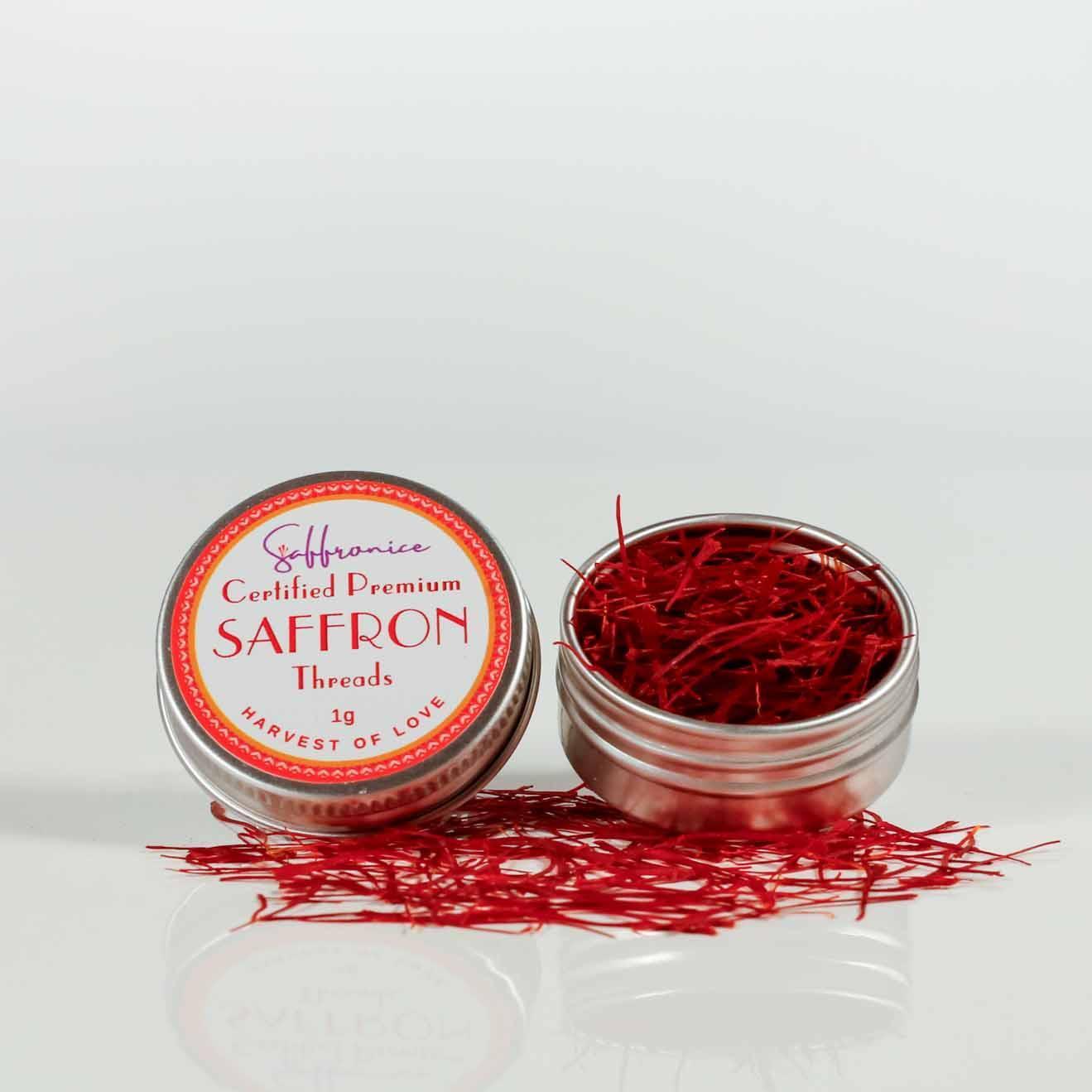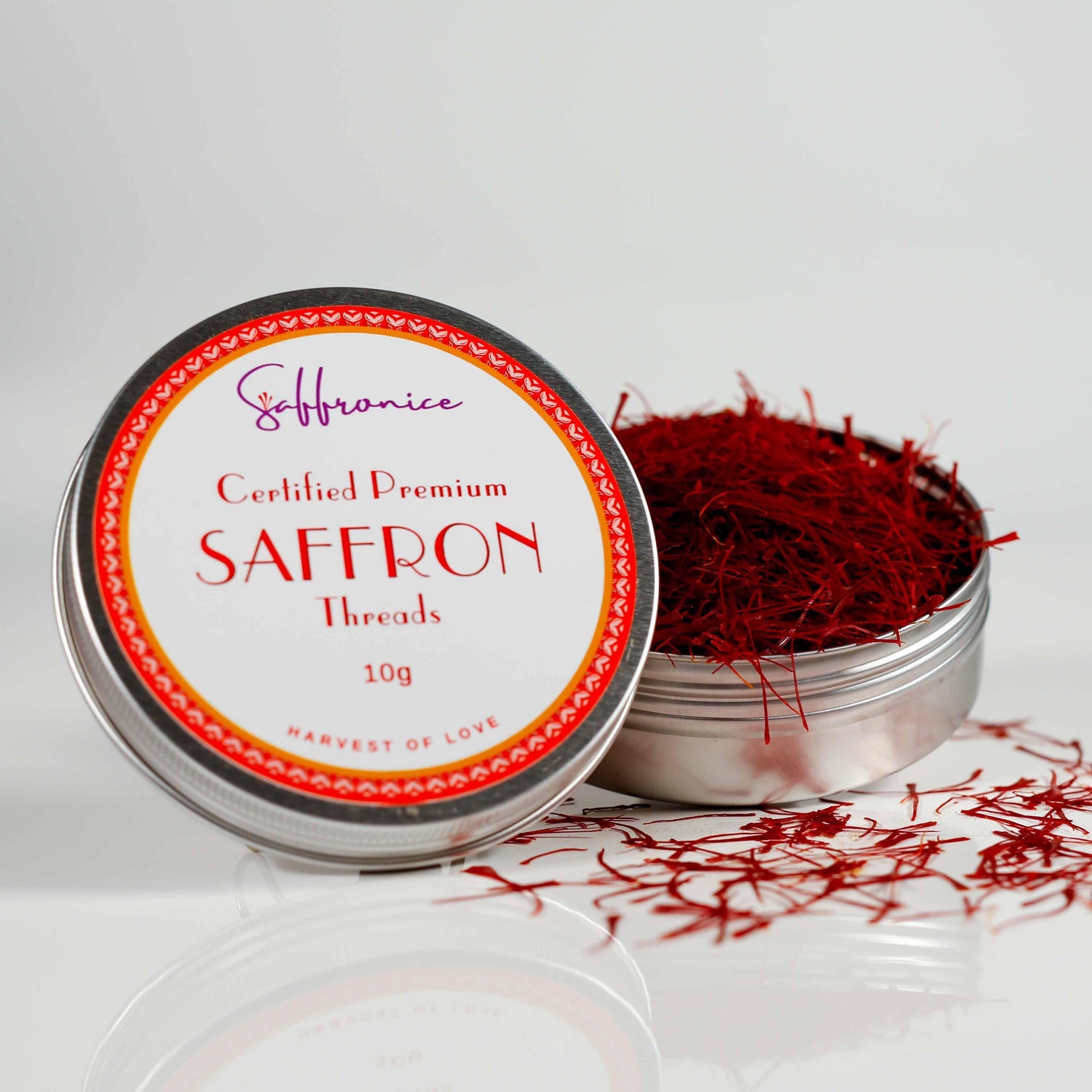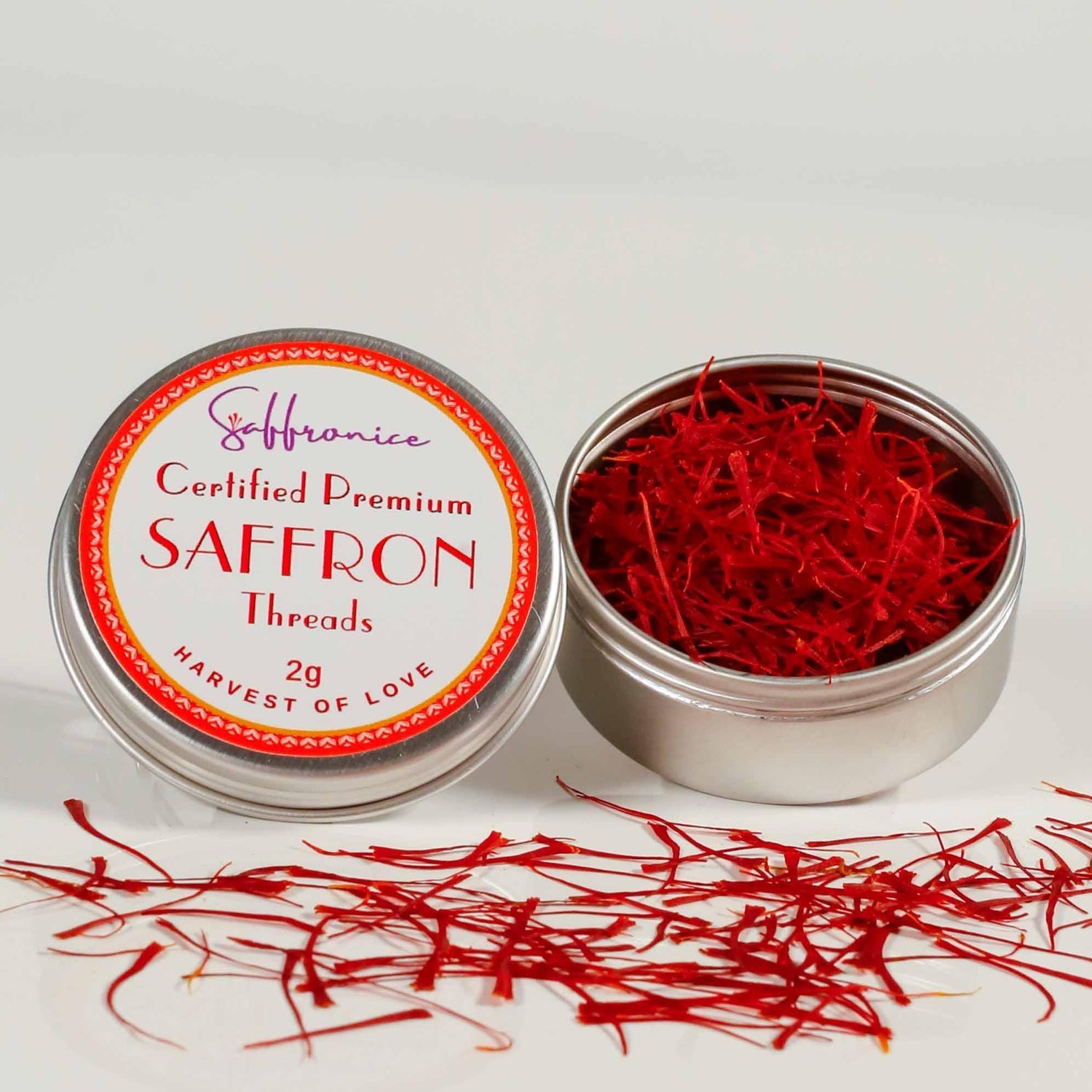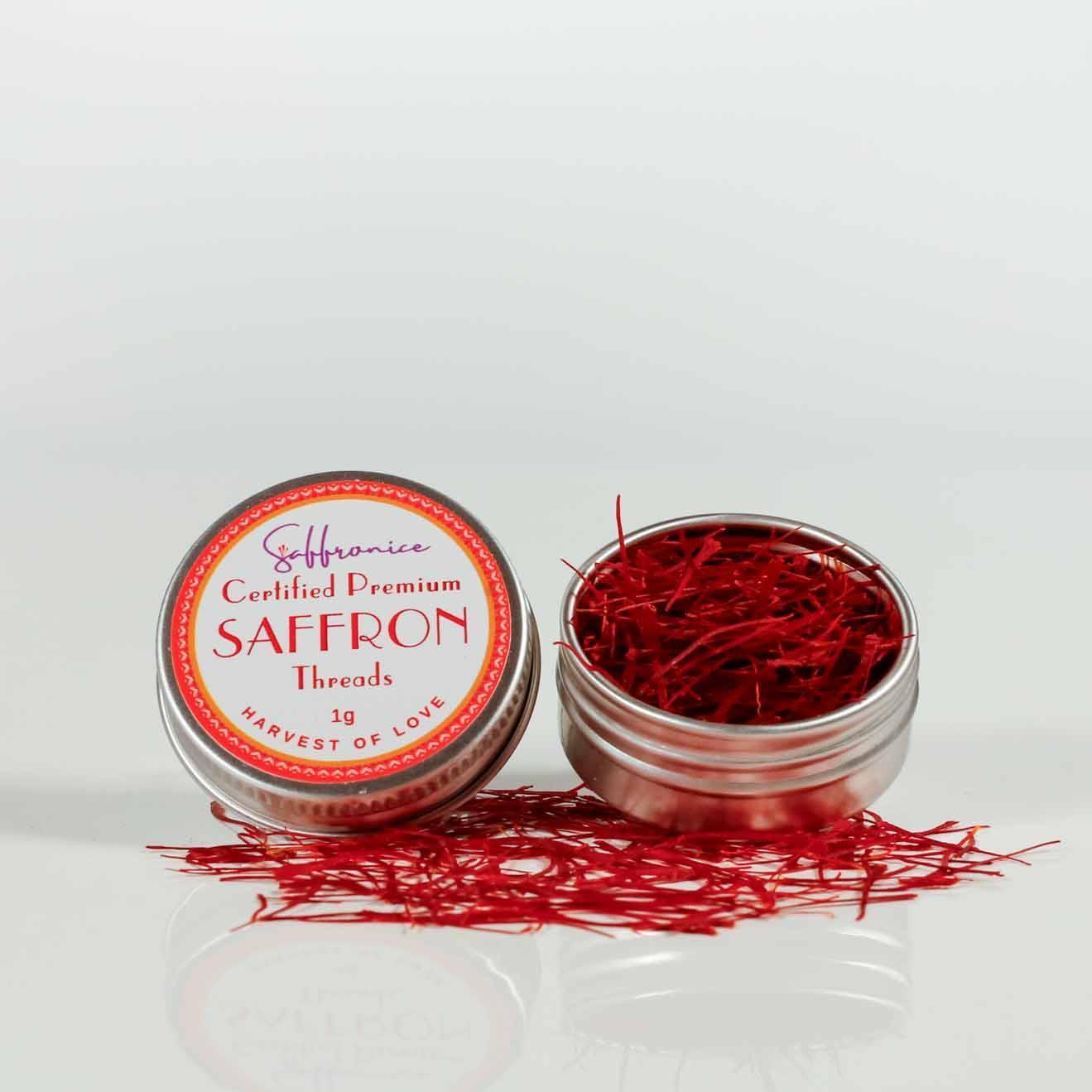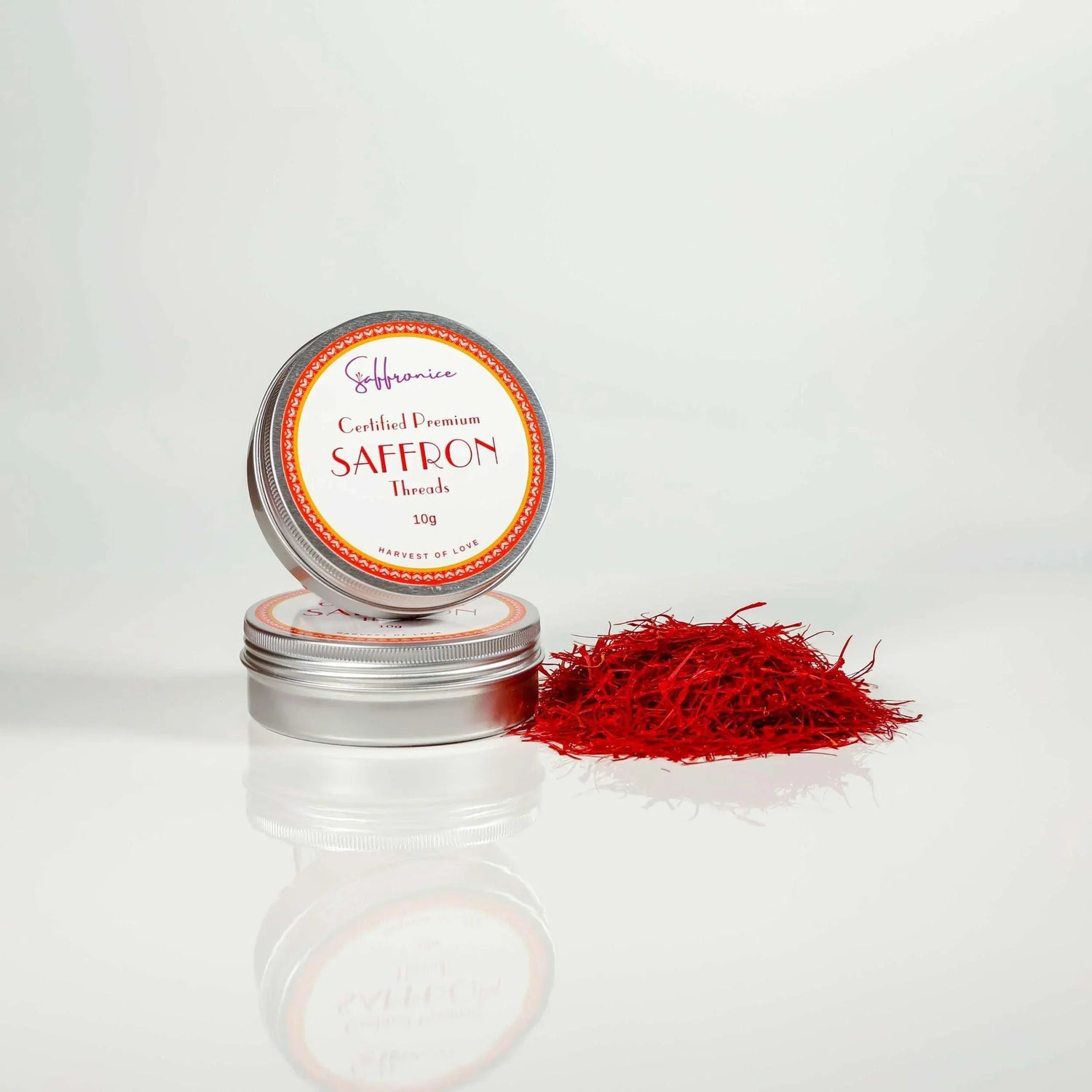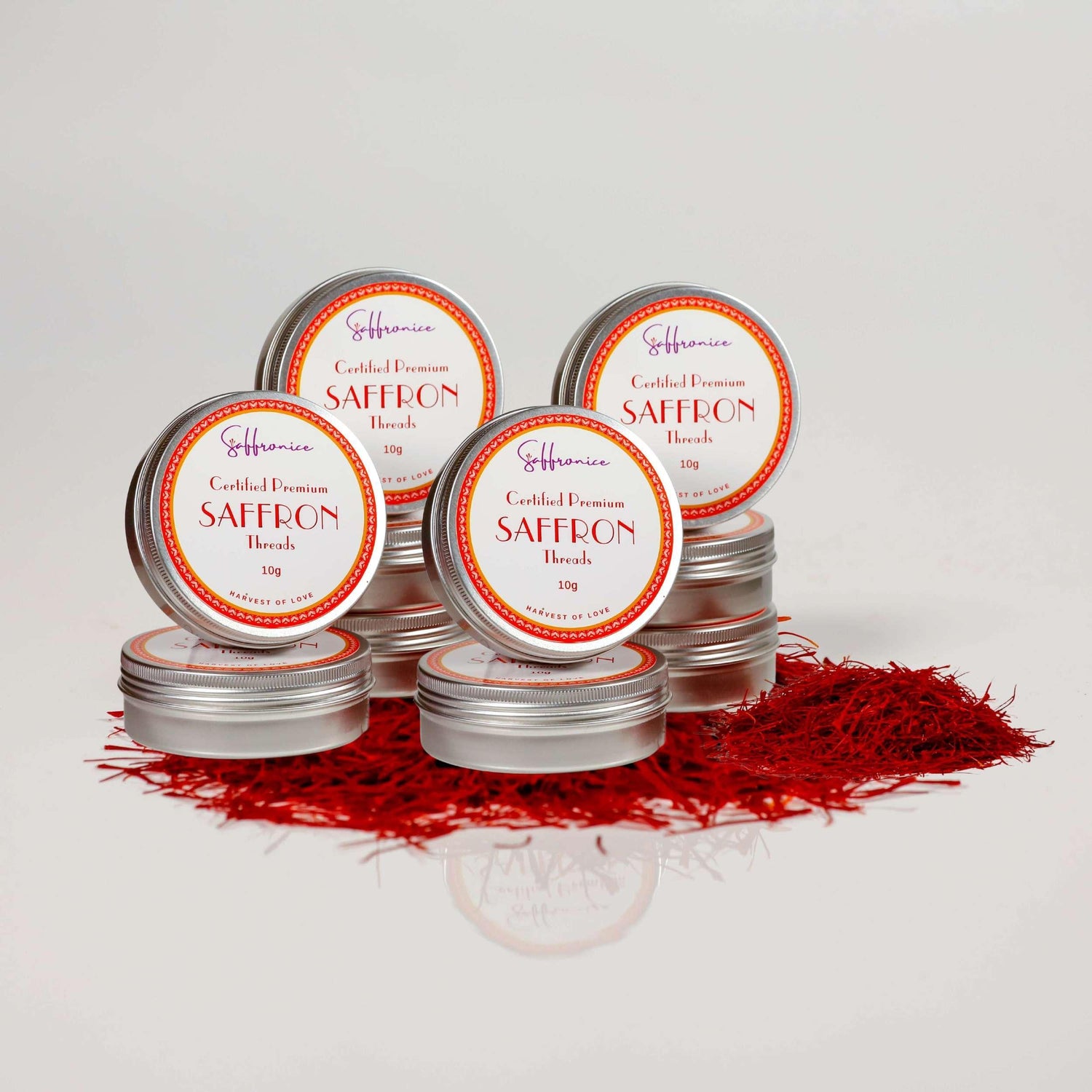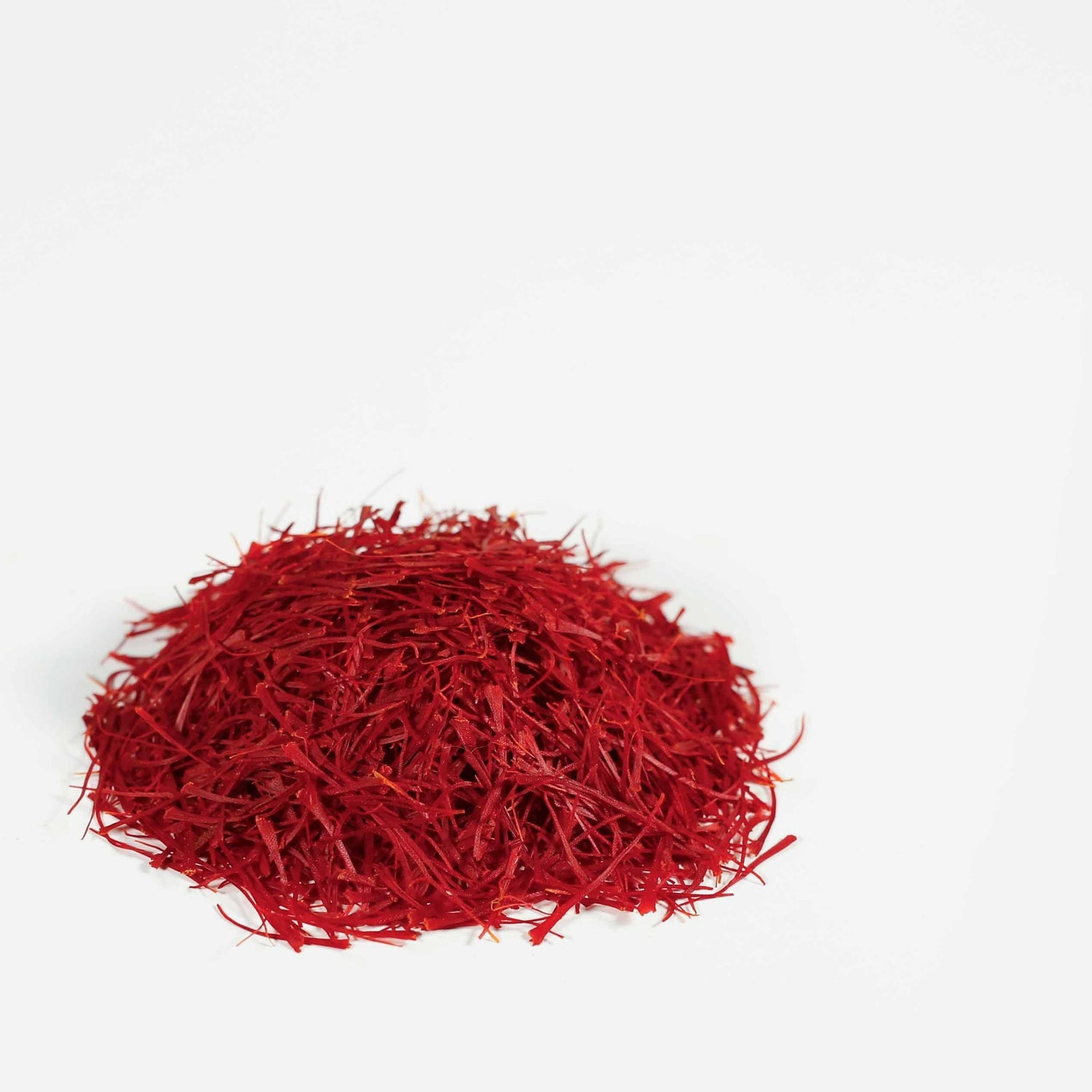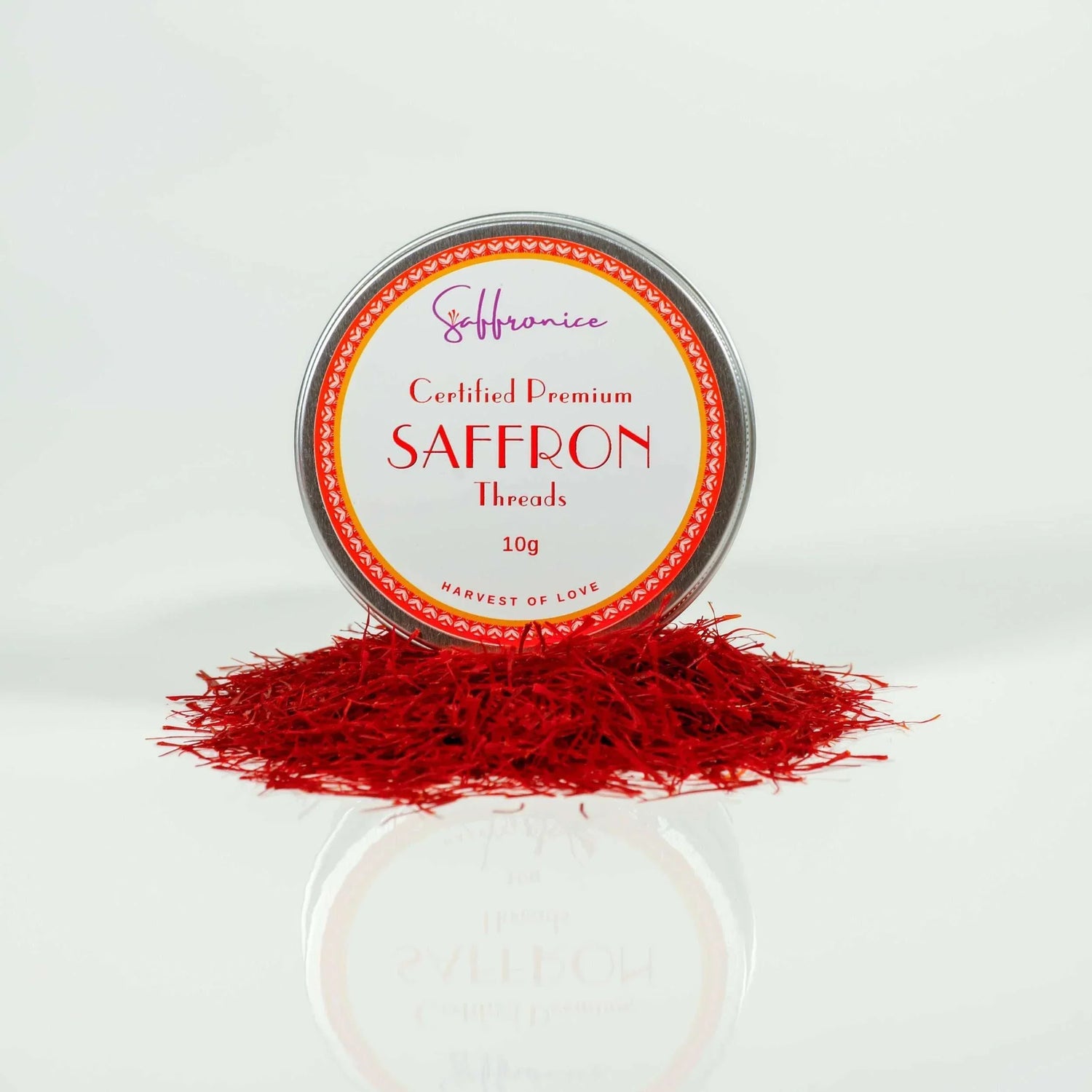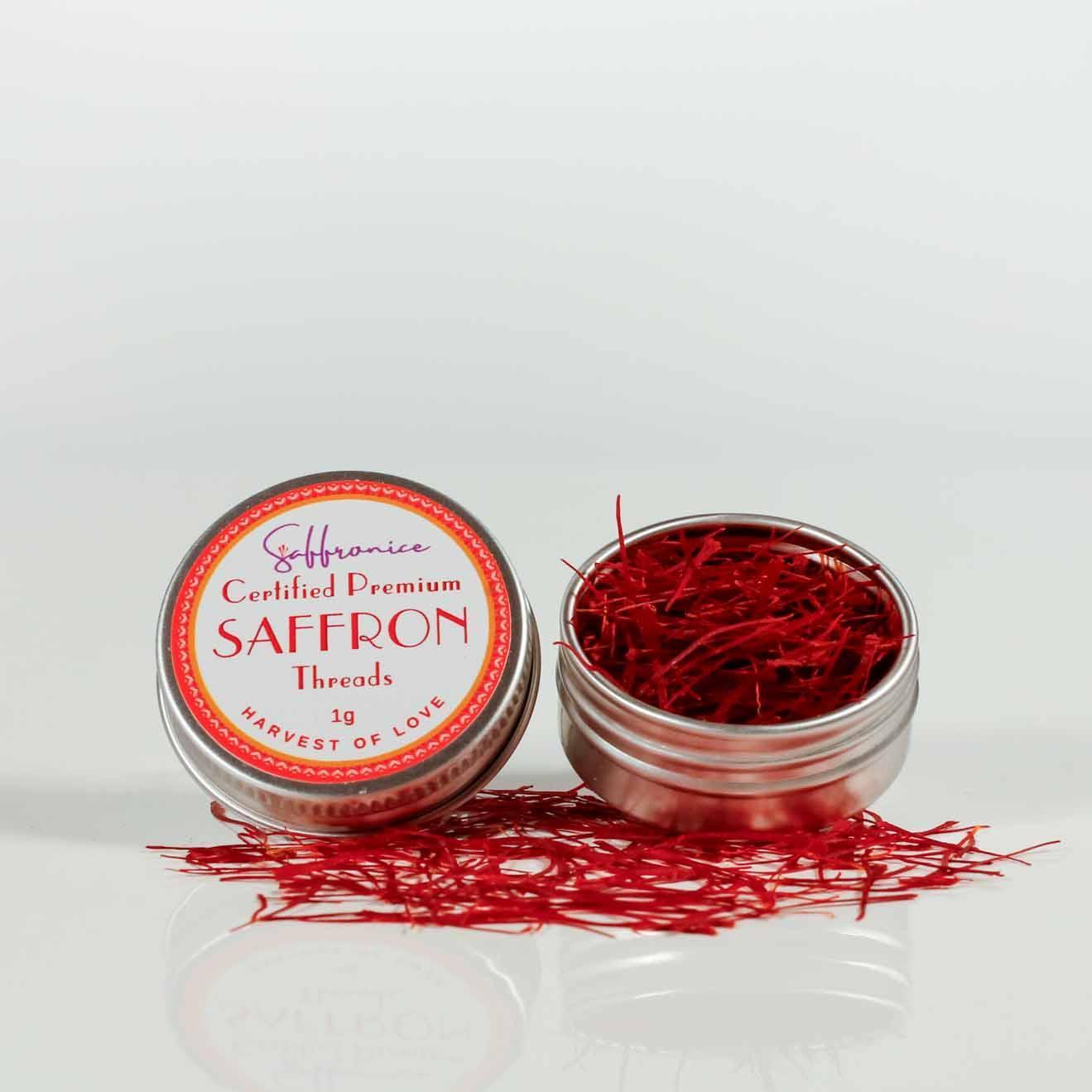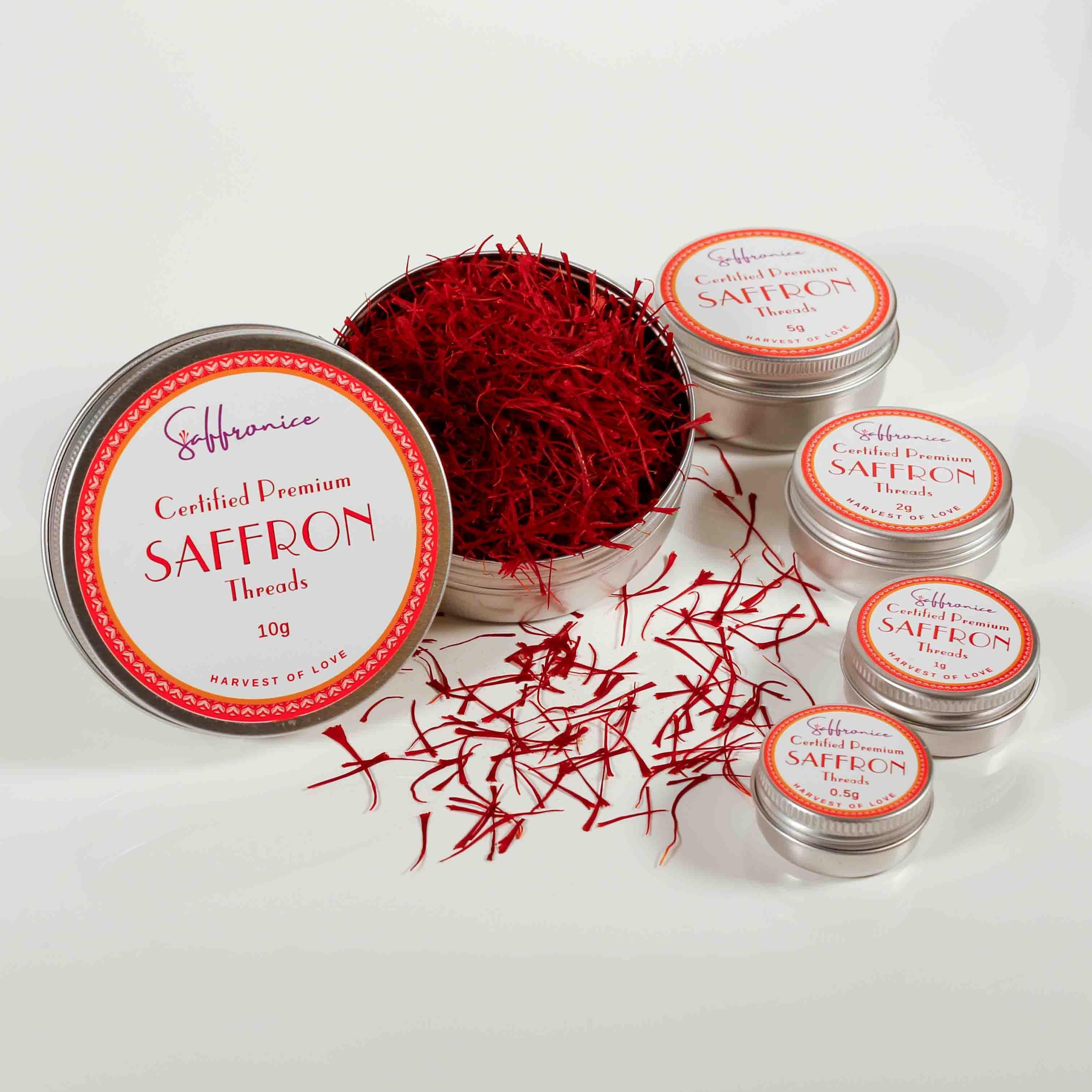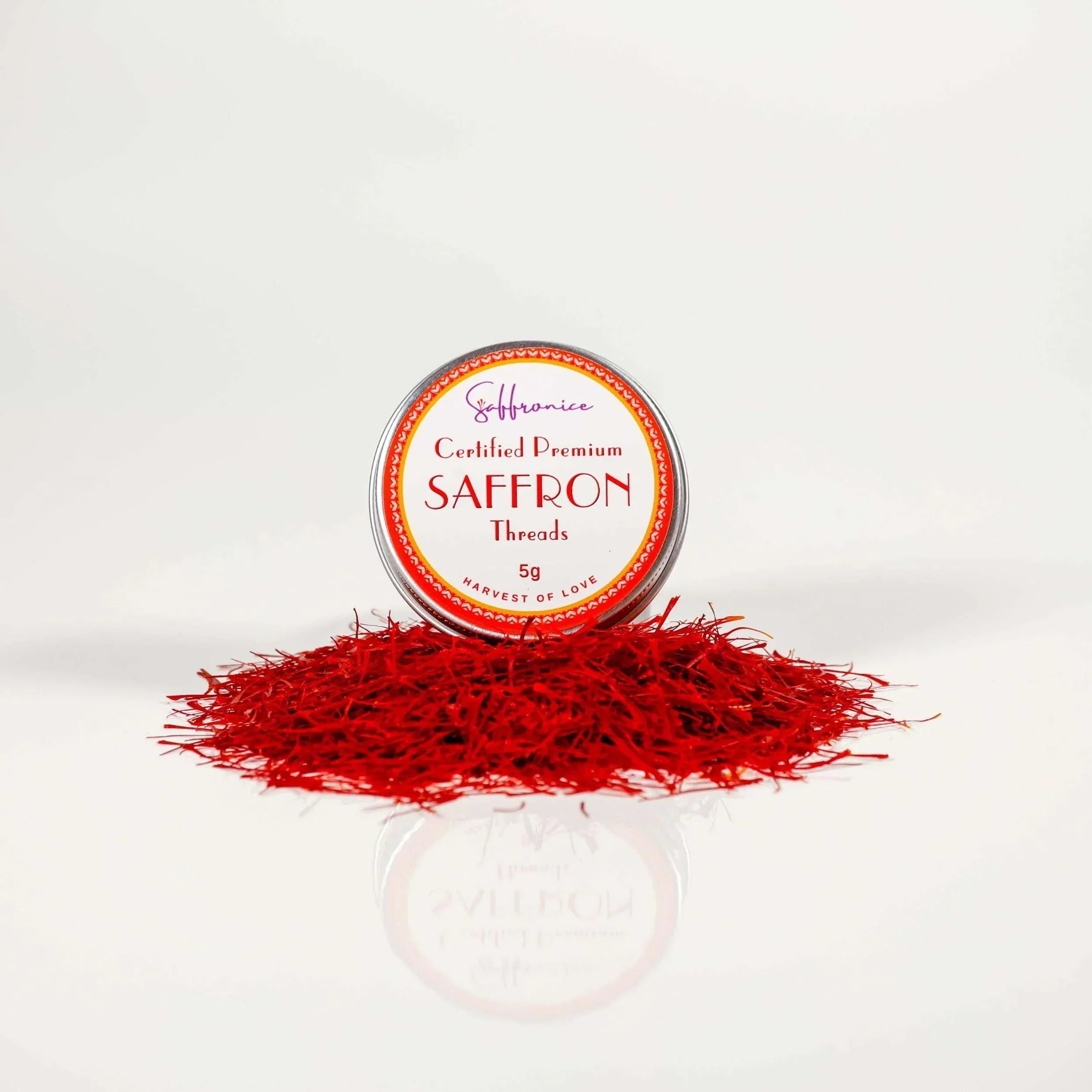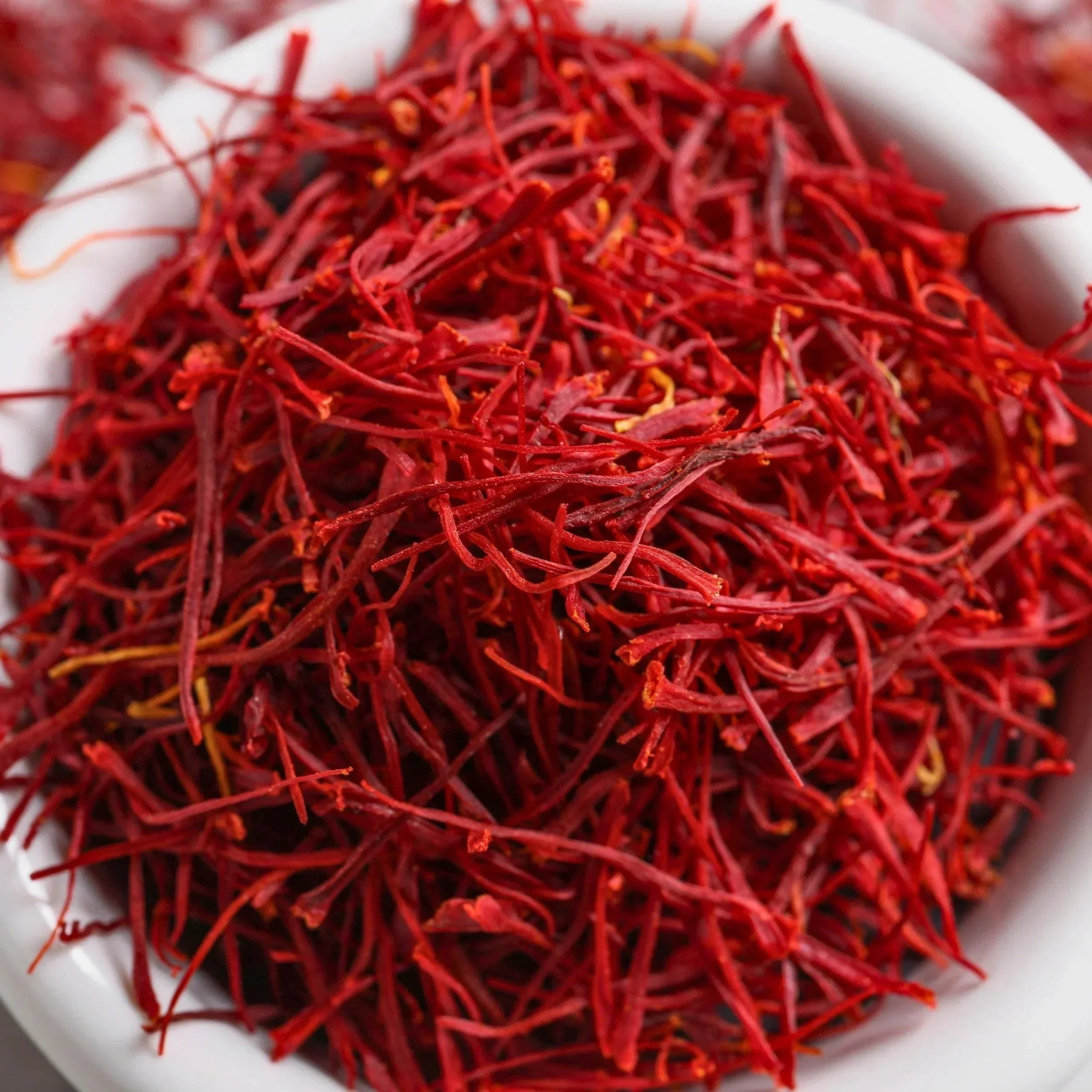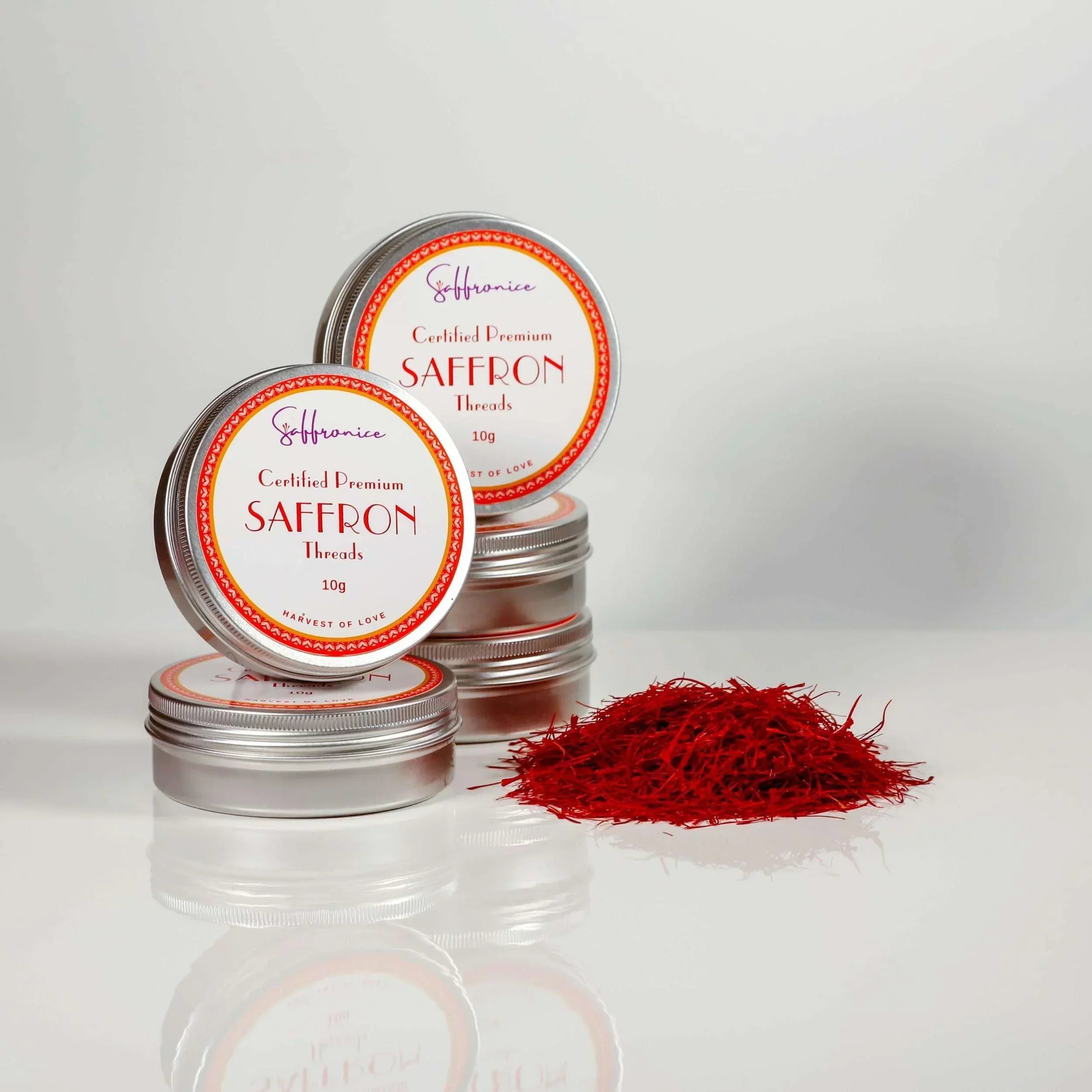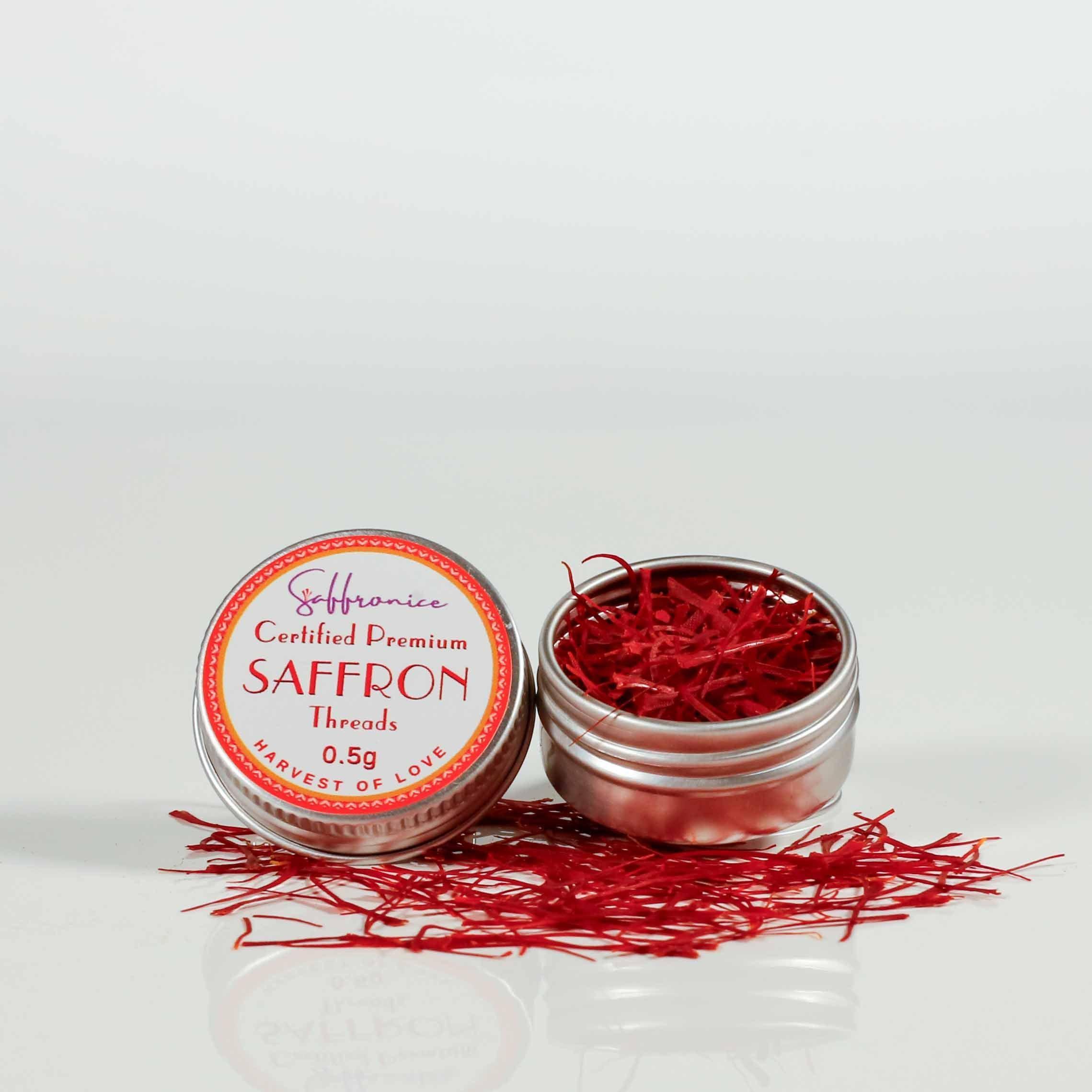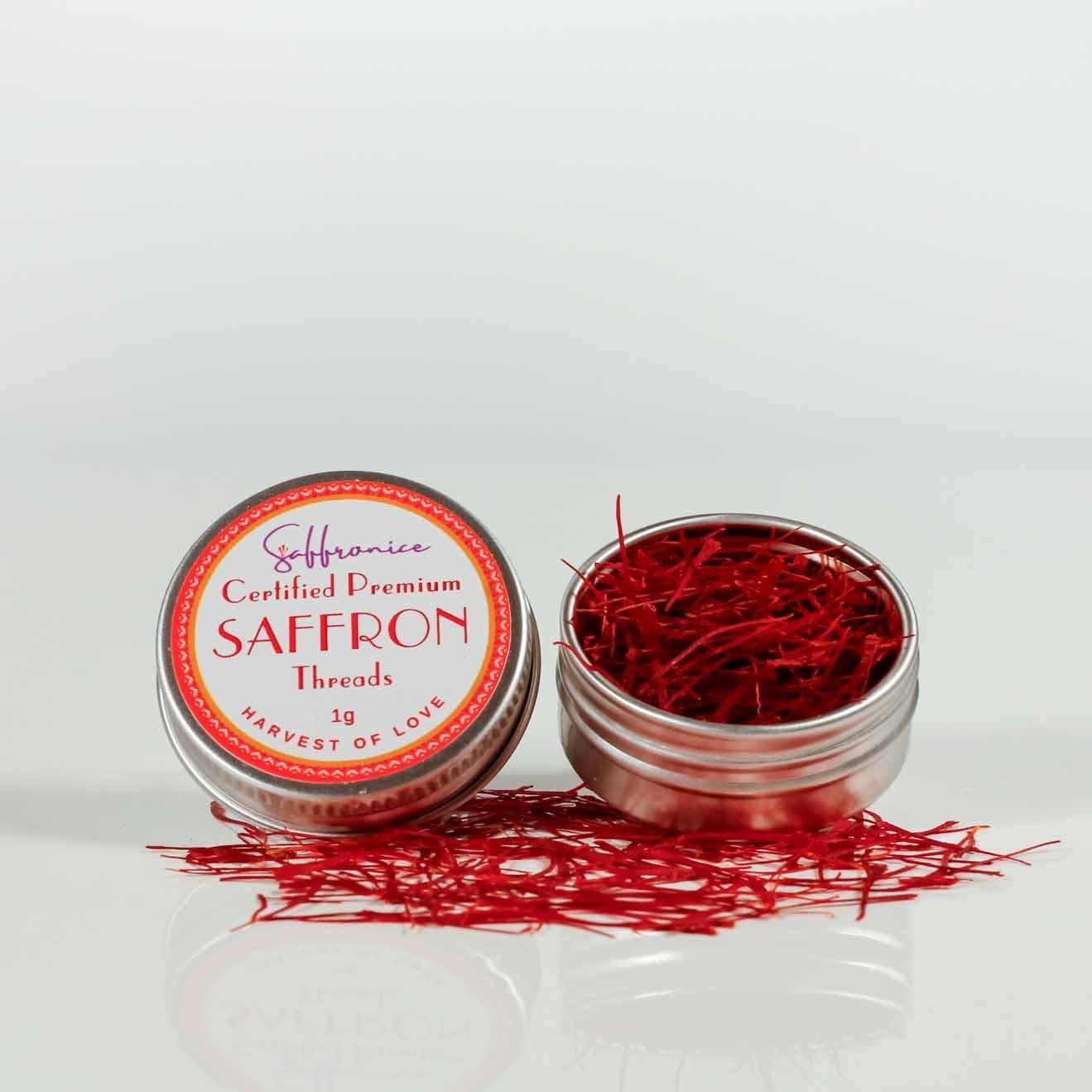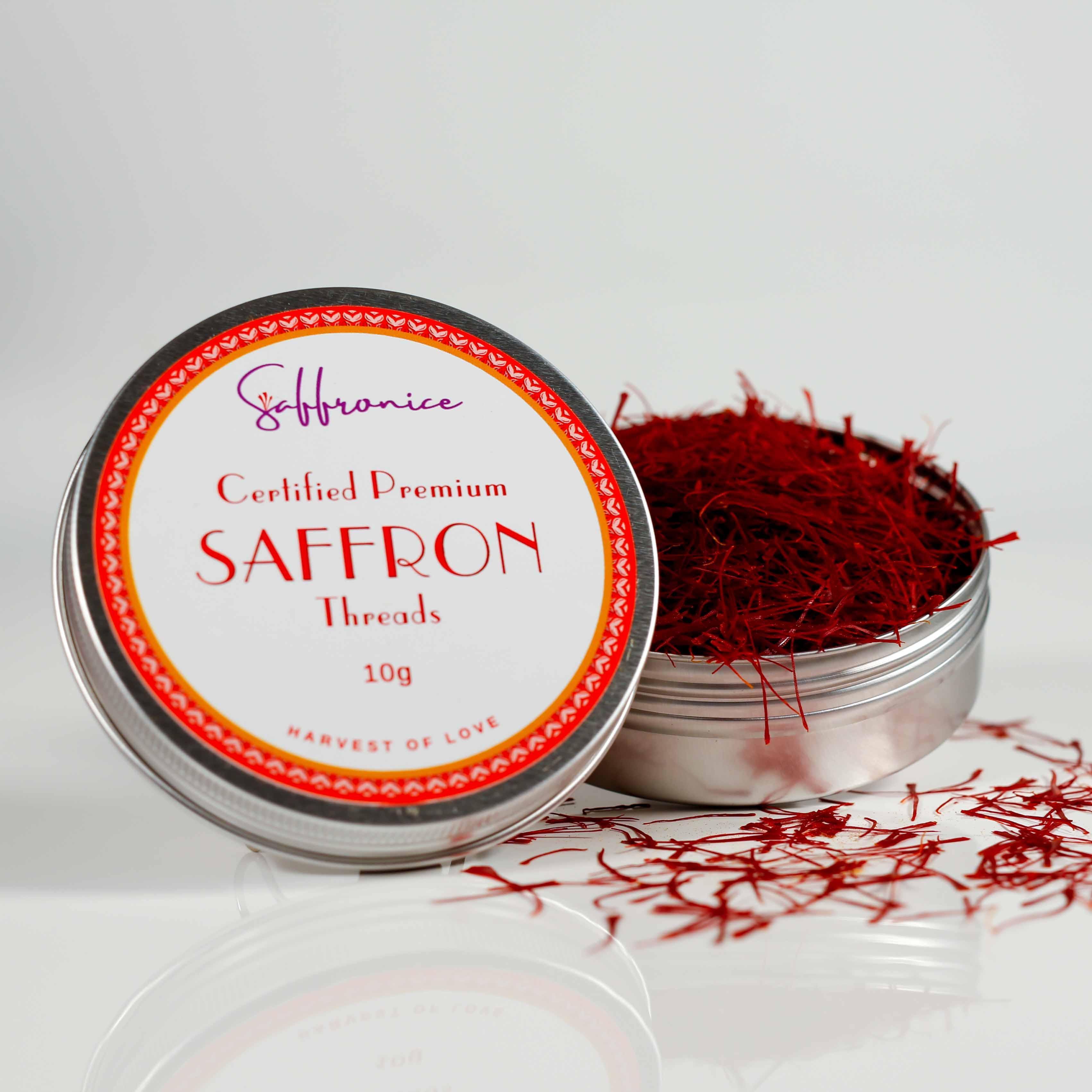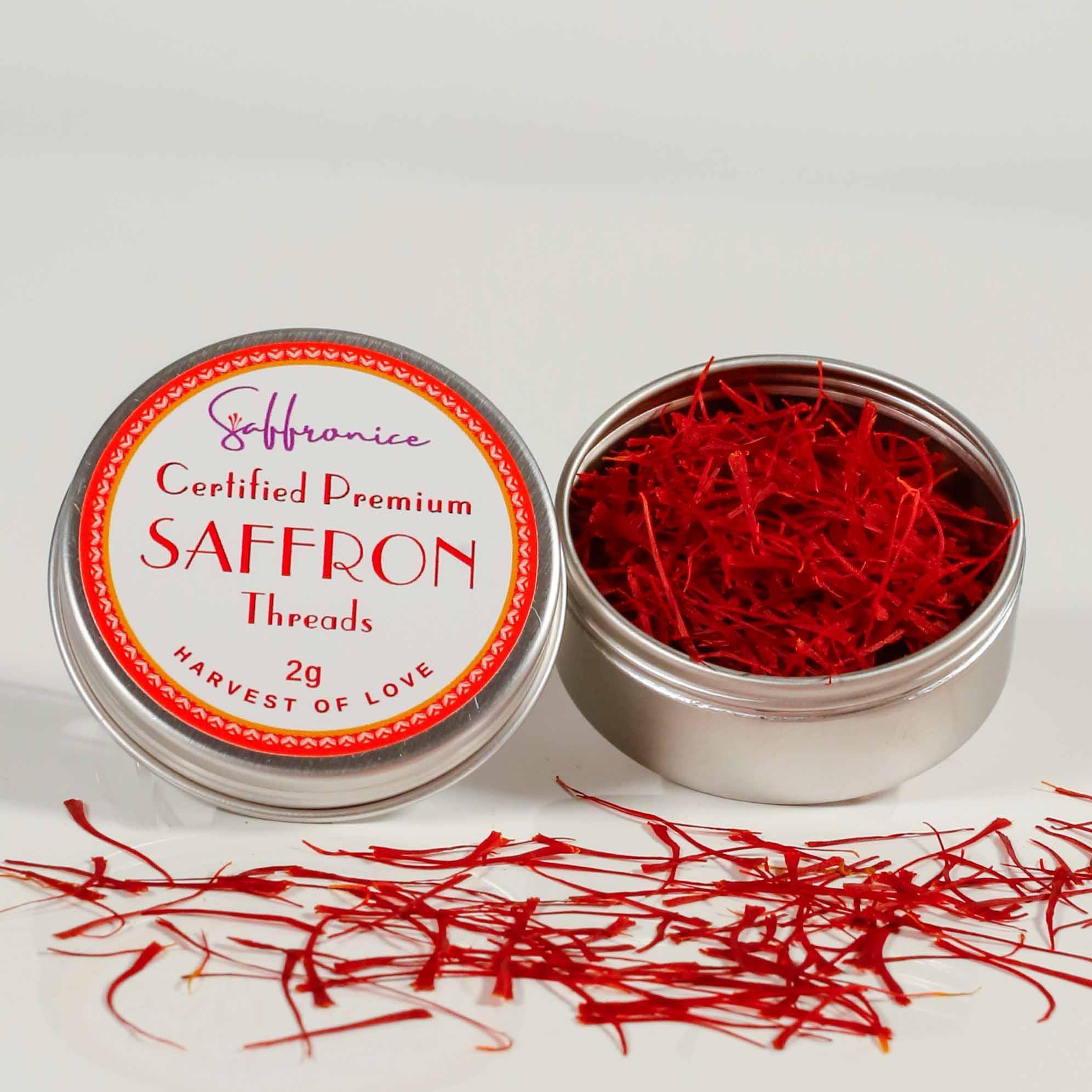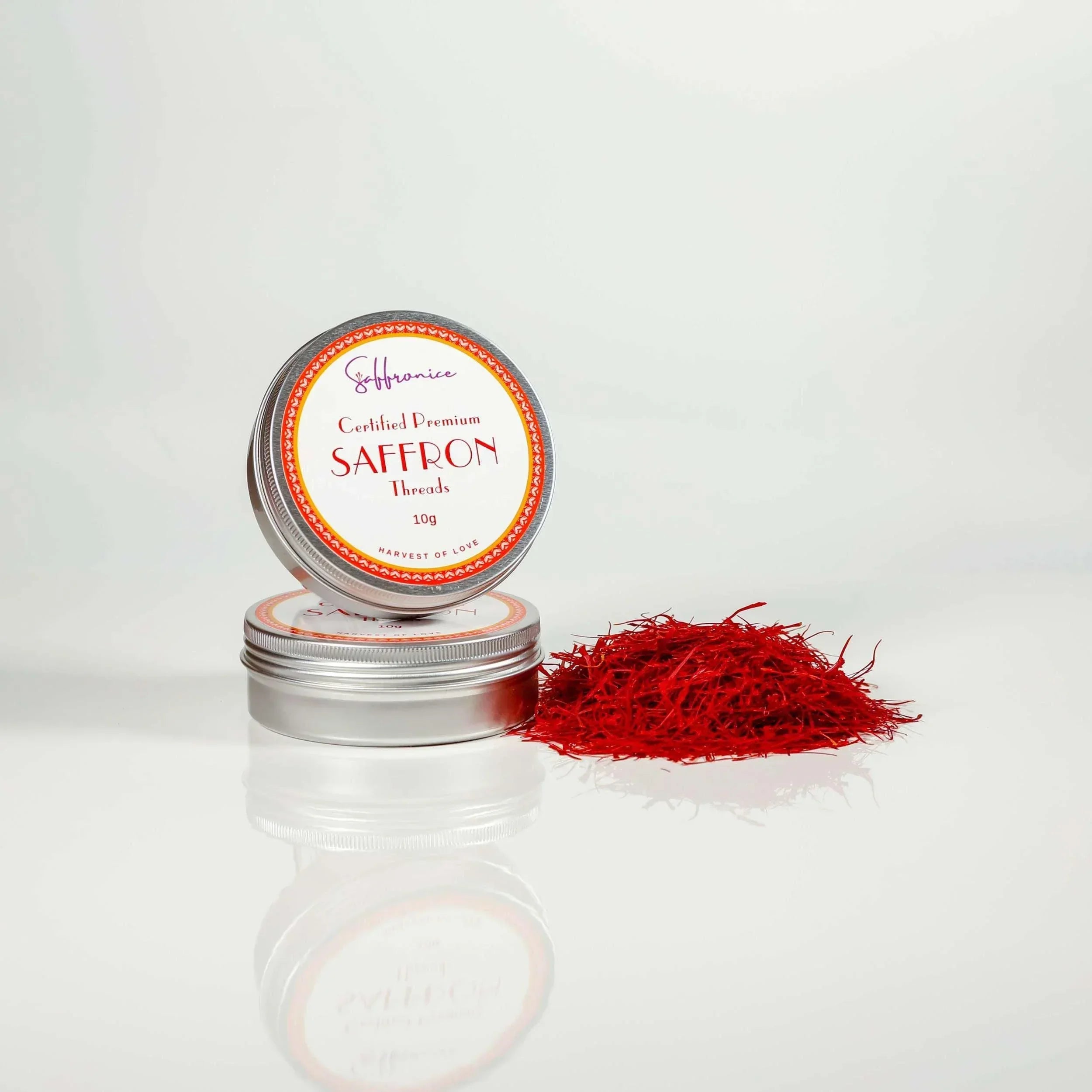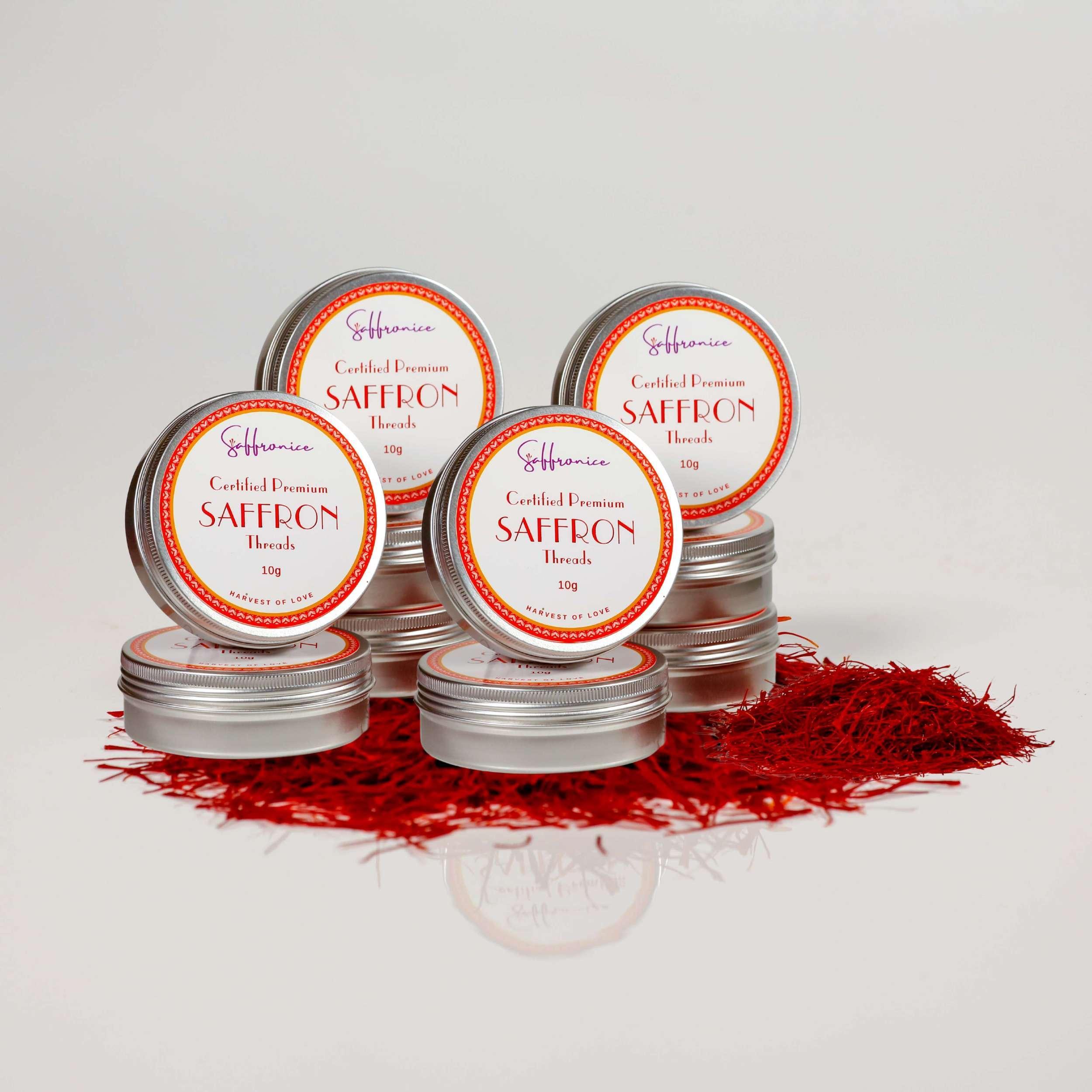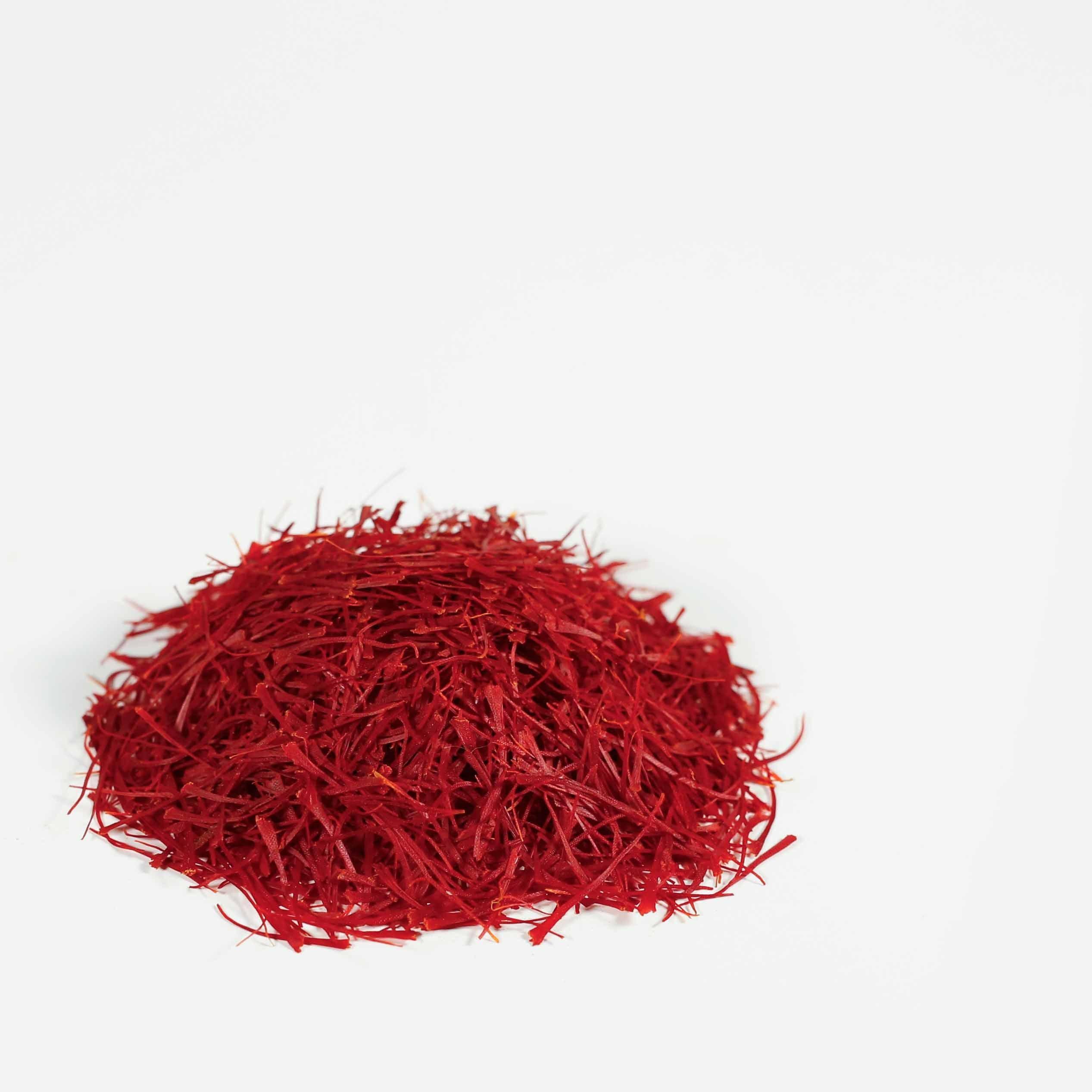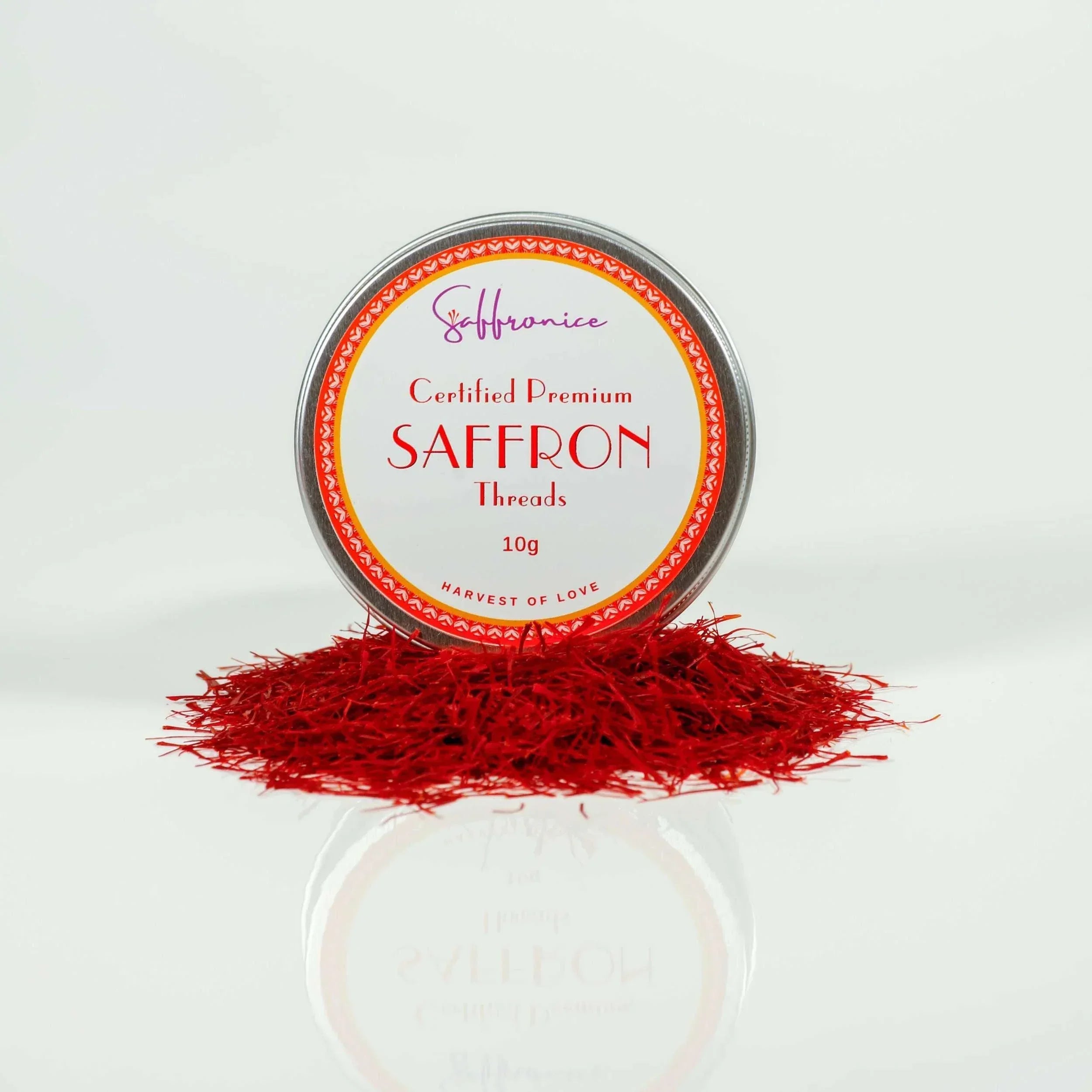Saffron Supplements A Natural Remedy for Optimal Health
Saffron supplements have gained immense popularity in the health industry due to their rich medicinal properties and high antioxidant content. Derived from the stigmas of Crocus sativus flowers, these supplements are packed with compounds such as crocin, crocetin, safranal, Picrocrocin and kaempferol. These antioxidants help protect cells against free radicals and oxidative stress, contributing to a wide range of health benefits (Babaei et al., 2014; Hosseinzadeh et al., 2005).

Key Compounds in Saffron
Crocin: This carotenoid pigment is responsible for saffron's distinctive color and acts as a powerful antioxidant (Babaei et al., 2014).
Crocetin: Another potent antioxidant, crocetin supports cardiovascular health by improving blood flow (Hosseinzadeh et al., 2005).
Safranal: Known for its aromatic properties, safranal has shown potential in mood enhancement and neuroprotection (Lopresti & Drummond, 2014).
Kaempferol: This flavonoid exhibits anti-inflammatory and anticancer properties (Bathaie & Mousavi, 2010).
Health Benefits
In this guide, we will explore the various health benefits of saffron supplements supported by scientific evidence. We will delve into their potential uses for treating different medical conditions, including:
Improved Mood and Mental Well-being:
Studies suggest that saffron supplements can aid in alleviating symptoms of depression and anxiety by increasing serotonin levels in the brain (Hausenblas et al., 2015). You can also visit our article tilted: Saffron Supplements: Natural Mental Health Solutions to find out more.
Enhanced Libido and Sexual Function:
Research indicates that saffron may improve sexual function and libido, particularly in individuals experiencing sexual dysfunction due to antidepressant use (Modabbernia et al., 2012).
Relief from PMS Symptoms:
Saffron has been found to reduce premenstrual syndrome (PMS) symptoms like irritability, headaches, and cravings through its hormone-regulating effects (Agha-Hosseini et al., 2008).
Weight Management:
The appetite-suppressing properties of saffron can assist in weight loss by reducing snacking frequency and curbing cravings (Gout et al., 2010).
Considerations for Use
However, it's essential to understand the possible side effects and learn how to choose a reliable product, especially given the FDA regulation of supplements. Some common side effects may include:
- Nausea
- Dizziness
- Dry mouth
Choosing the Right Product
When selecting saffron supplements:
Look for products that provide clear information on saffron concentration.
Ensure that the brand follows good manufacturing practices (GMP) for quality assurance.
Check for third-party testing to verify purity and potency.
Consulting a healthcare professional before incorporating saffron supplements into your routine is crucial.
If you're interested in exploring saffron supplements more, you can find a variety of them on Saffronice. They offer a range of herbal supplements derived from Crocus sativus that can potentially assist in fighting against conditions like PMS, Alzheimer's, and Depression while providing natural relief through their antioxidant properties.

Let's dive in!
1. Understanding the Medicinal Properties of Saffron Supplements
Saffron supplements offer a wide range of health benefits, thanks to their unique combination of natural compounds. These compounds work together to promote well-being and protect the body from various ailments.
Key Compounds in Saffron
Saffron's health benefits are primarily attributed to several key compounds:
Crocin:
This carotenoid pigment is responsible for saffron's distinctive colour. Crocin acts as a powerful antioxidant, shielding cells from harmful oxidative stress. It may also have antidepressant effects by regulating neurotransmitter levels (Babaei et al., 2014).
Crocetin:
Similar to crocin, crocetin is another carotenoid found in saffron. It supports cardiovascular health by improving blood flow and lowering cholesterol levels. Early studies suggest it could potentially aid in the management of neurodegenerative diseases like Alzheimer's and Parkinson's (Hosseinzadeh et al., 2005).
Safranal:
This volatile compound gives saffron its characteristic aroma. Safranal has shown promise as an antidepressant, anxiety reliever, and anticonvulsant. Its mood-boosting properties are believed to be linked to its influence on serotonin activity in the brain (Lopresti & Drummond, 2014).
Kaempferol: Another Important Antioxidant
In addition to these compounds, saffron contains kaempferol, a flavonoid with significant antioxidant activity. Kaempferol helps reduce inflammation, supports cardiovascular health, and may offer protective effects against certain cancers. By scavenging free radicals, it prevents cellular damage and contributes to overall well-being (Bathaie & Mousavi, 2010).
These compounds collectively make saffron a potent supplement with diverse health benefits backed by scientific research.
2. The Promising Role of Saffron Supplements in Enhancing Mental and Emotional Well-being
Depression Relief and Anxiety Management
Saffron supplements have shown promise as a natural remedy for depression relief and anxiety management. Studies indicate that saffron may be as effective as conventional antidepressants in alleviating symptoms of mild to moderate depression. This is attributed to its ability to modulate serotonin levels in the brain, a neurotransmitter crucial for mood regulation (Hausenblas et al., 2015).
Clinical Research:
Multiple clinical trials have demonstrated saffron's efficacy in reducing depressive symptoms. For instance, a study published in the Journal of Affective Disorders found that saffron extract was comparable to fluoxetine (Prozac) in treating mild to moderate depression (Akhondzadeh et al., 2005).
Anxiolytic Effects:
Beyond its antidepressant properties, saffron also helps alleviate anxiety. Its anxiolytic effects are believed to stem from its influence on gamma-aminobutyric acid (GABA) receptors, which play a key role in reducing neuronal excitability (Hosseinzadeh & Noraei, 2009).
Neurodegenerative Disorders: Alzheimer's and Parkinson's Disease
The potential of saffron supplements in treating neurodegenerative disorders such as Alzheimer's and Parkinson's disease is another area of interest. Research suggests that saffron's active compounds, like crocin and crocetin, can improve cognitive function by enhancing memory and learning abilities. These compounds may also protect brain cells from oxidative stress and inflammation, both of which are implicated in the progression of these diseases (Pitsikas et al., 2007).
Cognitive Enhancement:
Crocin has been shown to enhance cognitive performance by boosting synaptic plasticity—the brain's ability to form new neural connections (Sarris et al., 2014).
Neuroprotection:
Crocetin offers neuroprotective benefits by mitigating oxidative damage and reducing inflammation. These effects are crucial in slowing down the degeneration of neural tissues seen in Alzheimer's and Parkinson's patients (Zhang et al., 2017).

Mechanisms Behind Mood Regulation
One of the key mechanisms through which saffron supplements affect mood is by increasing the levels of serotonin in the brain. Serotonin is often referred to as the "feel-good" neurotransmitter, playing a critical role in mood stabilisation, sleep, and appetite regulation. By inhibiting the reuptake of serotonin, similar to how many antidepressant medications work, saffron helps maintain higher levels of this neurotransmitter, thereby improving overall emotional well-being (Akhondzadeh et al., 2005).
Serotonin Reuptake Inhibition:
Saffron contains bioactive compounds like safranal and crocin that inhibit serotonin reuptake, leading to increased availability of serotonin in synaptic spaces (Hausenblas et al., 2015).
Endorphin Release:
Additionally, saffron may stimulate the release of endorphins—natural painkillers produced by the brain—which contribute to improved mood and reduced perception of pain (Lopresti & Drummond, 2014).
Understanding these potential benefits can offer valuable insights into how saffron supplements might serve as a complementary approach to mental health care. By incorporating these herbal supplements into your routine under professional guidance, you could experience enhanced mental clarity and emotional stability.
Carotenoids Benefits: Antioxidant Properties
Saffron is rich in carotenoids such as crocin and crocetin, which contribute significantly to its antioxidant properties. These compounds help neutralise free radicals, thereby reducing oxidative stress—a key factor in many chronic diseases, including neurodegenerative disorders. The antioxidant properties of carotenoids also support overall cellular health by preventing damage caused by environmental toxins.
Pharmacological Effects
The pharmacological effects of saffron are diverse due to its complex chemical composition. Compounds like safranal contribute not only to its distinctive aroma but also possess mood-enhancing properties by influencing serotonin activity in the brain. The efficacy of herbal supplements like saffron is backed by scientific research highlighting their benefits across various health domains.
By understanding these pharmacological effects alongside the well-documented antioxidant properties and neuroprotection offered by carotenoids found in Crocus sativus (saffron), individuals can make informed decisions about incorporating this potent herbal supplement into their wellness routine.

3. Saffron Supplements for Vitality and Sexual Health
Saffron supplements have gained attention for their potential to improve sexual health and vitality. Both scientific studies and traditional use show that saffron can help enhance libido and sexual function in both men and women.
Boosting Libido
Research has highlighted saffron's ability to increase libido. A study published in Phytomedicine found that saffron significantly improved sexual arousal, lubrication, and satisfaction in women who were experiencing sexual problems due to taking antidepressants. In men, another study published in the Journal of Human Psychopharmacology showed that saffron could improve erectile function and overall satisfaction (Akhondzadeh et al., 2009).
Key Findings:
Women: Improved sexual arousal, lubrication, and satisfaction
Men: Enhanced erectile function and overall satisfaction
Treating Erectile Dysfunction
One of the most notable benefits of saffron is its potential as a natural remedy for erectile dysfunction (ED). This is mainly due to its key compound called crocin. In a controlled trial where neither the participants nor the researchers knew who was receiving the saffron or the placebo, it was discovered that men who consumed saffron extract for ten days experienced significant improvements in their ability to achieve and maintain an erection compared to those who took a placebo (Shamsa et al., 2009).
Study Highlights:
Duration: 10 days
Outcome: Significant improvement in achieving and maintaining erections
Traditional Use
For many centuries, different cultures have been using saffron for its aphrodisiac properties. In Ayurvedic medicine, for example, saffron has been prescribed for a long time to help with male infertility issues and increase sexual desire (Hosseinzadeh & Younesi, 2002).
Historical Insights:
Ayurveda: Used to treat male infertility and enhance sexual desire
Cultural Significance: Widely recognised for aphrodisiac properties across various cultures
How It Works
Saffron's positive effects on sexual health can be attributed to its antioxidant properties, which help improve blood flow and reduce oxidative stress. These factors work together to enhance libido and sexual performance. The carotenoid benefits found in Crocus sativus (saffron) contribute significantly through their pharmacological effects, including mood enhancement and neuroprotection (Gout et al., 2010).
Mechanisms:
Antioxidant Properties: Improve blood flow
Reduction of Oxidative Stress: Enhances overall sexual performance
Key Takeaway:
The evidence suggests that saffron supplements may offer a natural alternative for enhancing libido and treating erectile dysfunction, making them an appealing option for individuals seeking to improve their sexual health.

4. Using Saffron Supplements for Better Health: Anti-inflammatory and Antioxidant Effects
Saffron supplements are gaining popularity for their potential to improve overall well-being through their anti-inflammatory and antioxidant effects. The active compounds found in saffron, such as crocin, crocetin, and safranal, have been shown to have powerful abilities in reducing inflammation and fighting oxidative stress, which can lead to various health benefits (Babaei et al., 2014; Bathaie & Mousavi, 2010).
Finding Relief from PMS Symptoms
Many women are turning to saffron supplements as a natural remedy for relieving symptoms of premenstrual syndrome (PMS). Research suggests that saffron may help alleviate common PMS symptoms such as mood swings, irritability, and pain. Its anti-inflammatory properties can help reduce discomfort during this time, while its influence on serotonin levels may contribute to better mood control (Agha-Hosseini et al., 2008).
Potential Support for Weight Management
If you're looking to manage your weight, saffron supplements might be worth considering. Some studies have indicated that saffron could potentially assist with weight loss by helping to curb appetite. By increasing serotonin levels in the brain, saffron not only enhances mood but also reduces the desire to snack. This natural appetite suppression mechanism makes saffron an intriguing addition to weight management strategies (Gout et al., 2010).
Other Ways Saffron Supplements May Benefit Your Health
In addition to PMS symptom relief and potential support for weight management, saffron supplements might offer other advantages:
Improved Digestion: Saffron's anti-inflammatory effects may promote gastrointestinal health by reducing inflammation in the gut (Bathaie & Mousavi, 2010).
Enhanced Immune Function: The potent antioxidant properties of saffron can help shield cells from damage, potentially giving a boost to the immune system (Babaei et al., 2014).
Potential Uses of Saffron Supplements in Treating Medical Conditions
Saffron supplements have shown promise in addressing several medical conditions due to their unique biochemical properties. Emerging research highlights their therapeutic potential for a range of disorders:
PTSD Treatment and Anxiety Relief
Studies suggest that saffron may offer significant benefits for individuals suffering from Post-Traumatic Stress Disorder (PTSD) and anxiety disorders. The key compounds in saffron, particularly crocin and safranal, have been observed to exhibit anxiolytic properties. These compounds potentially modulate neurotransmitters such as serotonin, which plays a crucial role in mood regulation (Hausenblas et al., 2015).
Epilepsy Treatment and Seizure Management
Preliminary findings indicate that saffron might also aid in epilepsy treatment and seizure management. Research involving animal models has demonstrated that crocin possesses anticonvulsant effects, which could make it a viable adjunct treatment for epilepsy. By influencing the neurotransmitter pathways involved in seizure activity, saffron could help reduce the frequency and severity of seizures (Hosseinzadeh & Noraei, 2009).
Supporting Evidence
- A study published in the Journal of Affective Disorders found that saffron extract significantly reduced symptoms of anxiety compared to a placebo (Hausenblas et al., 2015).
- Research in Epilepsy & Behavior noted that saffron supplementation decreased seizure episodes in rodent models, indicating potential applications for human epilepsy treatment (Hosseinzadeh & Noraei, 2009).
These promising initial results indicate that saffron supplements could be an effective natural remedy for these conditions. However, more extensive clinical trials are necessary to fully understand the extent of these benefits.
By understanding how saffron can assist with specific medical conditions, individuals can make informed decisions about its use as part of their health regimen.
Examining the Safety Profile of Saffron Supplements
When considering saffron supplements, it's vital to be aware of potential side effects, especially at high doses. Saffron is generally safe when taken in small quantities, but consuming it in large amounts can lead to adverse health effects.
Common Side Effects
Symptoms of high-dose toxicity might include:
- Nausea
- Vomiting
- Dizziness
- Diarrhea
These symptoms are typically mild and subside once the dose is reduced or discontinued.
Severe Reactions
In extreme cases, very high doses of saffron can cause more severe issues such as:
Blood Disorders: High doses may affect blood cell production and function, potentially leading to conditions like anemia or thrombocytopenia (Modaghegh et al., 2008).
Organ Damage: Prolonged excessive intake might result in damage to vital organs such as the liver and kidneys. This could manifest as jaundice, abdominal pain, or altered kidney function tests (Bathaie & Mousavi, 2010).
Individual Sensitivities
It's also important to consider individual sensitivities. Some people might experience allergic reactions to saffron, which can include:
- Skin rashes
- Itching
- Breathing difficulties
Safe Dosage Recommendations
To minimise risks, adhere to recommended dosages provided by healthcare professionals or supplement manufacturers. Typically, doses up to 1.5 grams per day are considered safe for most individuals (Modaghegh et al., 2008).

Monitoring and Medical Consultation
If you experience any adverse effects while taking saffron supplements, it's crucial to seek medical advice promptly. Always consult with a healthcare provider before starting any new supplement regimen, particularly if you have pre-existing health conditions or are taking other medications.
Understanding these potential side effects helps ensure that you use saffron safely and effectively as part of your health regimen.
To find out when is the best time to take saffron supplements, please visit our blog.
Potential Interactions with Medications
Saffron supplements may interact with certain medications, which could result in unwanted side effects or diminished efficacy. It's essential to be aware of these interactions to use saffron safely.
Antidepressants: Saffron's influence on serotonin levels may amplify the effects of these medications. This interaction can potentially lead to serotonin syndrome, a condition characterised by symptoms such as confusion, rapid heart rate, and high blood pressure (Hausenblas et al., 2015).
Blood Pressure Medications: Saffron can potentially lower blood pressure, which might enhance the effect of antihypertensive drugs. Combining saffron with these medications could result in hypotension, causing dizziness, fainting, and even shock in severe cases (Bathaie & Mousavi, 2010).
Blood Thinners: There is a risk of increased bleeding when saffron is combined with anticoagulants like warfarin. This interaction can increase the likelihood of bruising and bleeding, both internally and externally, as saffron may further inhibit blood clotting mechanisms (Modaghegh et al., 2008).
Understanding these potential interactions allows for more informed discussions with healthcare providers about the suitability of saffron supplements in your regimen.
Key Takeaway
Given these risks, it is crucial to consult a healthcare professional before incorporating saffron supplements into your routine. This step is particularly important for individuals with underlying medical conditions or those taking prescription medications. Ensuring you have medical guidance can help mitigate potential health risks and ensure safe usage of saffron supplements.

Where to Buy High-Quality Saffron Supplements?
When looking for reliable sources of saffron supplements, it's important to ensure that the products you buy retain their healing properties. Here are some tips to help you choose:
Check for Purity: Look for saffron supplements that clearly state they contain pure saffron extract without fillers or additives. This ensures you are getting the full benefits of the saffron without any unnecessary additives.
Verify Source: Ensure the saffron is sourced from regions known for high-quality saffron production, such as Iran, Spain, or Kashmir. These areas are renowned for their optimal growing conditions and traditional harvesting methods.
Third-Party Testing: Opt for products that have undergone third-party testing to verify their potency and purity. Third-party testing can confirm that the supplement contains what it claims and is free from contaminants.
Customer Reviews: Read customer reviews and testimonials to gauge the effectiveness and quality of the supplement. Real user experiences can provide insights into how well the product works and any potential side effects.
Certifications: Seek out supplements that have been certified by health authorities or organisations. Certifications from recognised bodies can provide additional assurance of quality and safety.
Recommended Brand
After conducting thorough research, we recommend some of the best saffron supplements to support your wellness. Among these, Saffronice Saffron Supplements stand out for several reasons:
Premium Sourcing: Saffronice sources its saffron from premium-quality regions known for their optimal growing conditions.
Formulation and Production: These supplements are formulated and produced in France, utilizing the most advanced pharmaceutical facilities to ensure high standards.
Rigorous Testing: Each batch undergoes rigorous testing to guarantee purity and potency, ensuring you receive a product free from contaminants.
You can explore our range of Saffron Supplements here.

In Conclusion
Saffron supplements have emerged as a promising addition to the realm of natural health remedies. Their rich antioxidant profile, including compounds like crocin, crocetin, safranal, and kaempferol, offers a multitude of health benefits.
Key Health Benefits:
- Mental and Emotional Well-being: Saffron is recognized as a potential natural remedy for conditions such as depression, anxiety, and neurodegenerative disorders. Studies indicate that saffron may help elevate mood by increasing levels of serotonin in the brain (Hausenblas et al., 2015).
- Sexual Health: Research suggests that saffron can enhance libido and sexual function in both men and women. It is believed to improve erectile dysfunction and increase arousal, contributing to better overall sexual health (Modabbernia et al., 2012).
Overall Wellness:
The anti-inflammatory and antioxidant properties of saffron play crucial roles in various aspects of health:
- PMS Relief: Saffron has been shown to alleviate symptoms associated with premenstrual syndrome (PMS) such as irritability, headaches, and menstrual cramps (Agha-Hosseini et al., 2008).
- Weight Management: By reducing appetite and promoting satiety, saffron can aid in weight management efforts (Gout et al., 2010).
- Improved Digestion: Saffron's soothing properties can help improve digestion and reduce gastrointestinal discomfort (Bathaie & Mousavi, 2010).
- Immune Function: Antioxidants in saffron bolster the immune system, helping the body fend off infections and illnesses (Babaei et al., 2014).
Therapeutic Uses:
Preliminary research suggests that saffron could have applications in treating more severe conditions:
- PTSD and Anxiety Disorders: Saffron's calming effects may provide relief for individuals suffering from post-traumatic stress disorder (PTSD) and other anxiety-related disorders (Hausenblas et al., 2015).
- Epilepsy and Seizure Control: Initial studies indicate potential benefits of saffron in managing epilepsy and controlling seizures (Hosseinzadeh & Noraei, 2009).
While the potential of saffron supplements is significant, it is crucial to use them responsibly. Consulting a healthcare professional before beginning supplementation ensures safety, particularly if underlying medical conditions exist. High doses can lead to adverse effects such as dizziness, nausea, or allergic reactions, underscoring the importance of moderation.
“Saffron's historical reverence combined with modern scientific validation highlights its role in holistic health care.”
Incorporating saffron supplements into your routine could offer numerous benefits for your overall well-being. Remember to always prioritize quality over quantity by choosing reputable brands that emphasize premium sourcing, rigorous testing, and adherence to high production standards.
References
- Agha-Hosseini, M., Kashani, L., Aleyaseen, A., et al. (2008). "Saffron in the treatment of premenstrual syndrome." International Journal of Obstetrics & Gynaecology, 101(2), 109-115.
- Akhondzadeh, S., et al. (2005). "Comparison of crocus sativus L. and imipramine in the treatment of mild to moderate depression: A pilot double-blind randomized trial." Journal of Ethnopharmacology, 97(2), 281-284.
- Akhondzadeh, S., et al. (2009). "Saffron (Crocus sativus) in the treatment of mild to moderate depression: A double-blind, randomized, and placebo-controlled trial." Phytotherapy Research, 23(3), 365-369.
- Babaei, S., et al. (2014). "Antioxidant and neuroprotective properties of saffron: From chemical composition to therapeutic implications." Planta Medica, 80(10), 771-785.
- Bathaie, S. Z., & Mousavi, S. Z. (2010). "New applications and mechanisms of action of saffron and its important ingredients." Critical Reviews in Food Science and Nutrition, 50(8), 761-786.
- Gout, B., et al. (2010). "Effect of a botanical composition (Satiereal) on snacking and weight loss in women." Nutrition Research, 30(5), 305-313.
- Hausenblas, H. A., et al. (2015). "Saffron (Crocus sativus) and major depressive disorder: a meta-analysis of randomized clinical trials." Journal of Integrative Medicine, 13(4), 231-240.
- Hosseinzadeh, H., & Noraei, N. B. (2009). "Anxiolytic and hypnotic effect of Crocus sativus aqueous extract and its constituents, crocin and safranal, in mice." Phytotherapy Research, 23(6), 768-774.
- Hosseinzadeh, H., & Younesi, H. M. (2002). "Antinociceptive and anti-inflammatory effects of Crocus sativus L. stigma and petal extracts in mice." BMC Pharmacology, 2(1), 7.
- Lopresti, A. L., & Drummond, P. D. (2014). "Saffron (Crocus sativus) for depression: a systematic review of clinical studies and examination of underlying antidepressant mechanisms of action." Human Psychopharmacology, 29(6), 517-527.
- Modabbernia, A., et al. (2012). "Saffron in the treatment of depression and its potential efficacy in individuals taking SSRIs." Phytomedicine, 19(2), 98-102.
- Modaghegh, M. H., et al. (2008). "Safety evaluation of saffron (Crocus sativus) tablets in healthy volunteers." Phytomedicine, 15(12), 1032-1037.
- Pitsikas, N., et al. (2007). "Effects of the active constituents of Crocus sativus L., crocins, in an animal model of anxiety." Phytomedicine, 14(9), 621-624.
- Sarris, J., et al. (2014). "KeenMind® (bacopa monnieri): a combined phase 1 and 2 randomized, double-blind, placebo-controlled trial on cognition and mood in healthy subjects." Journal of Psychopharmacology, 28(9), 845-853.
- Shamsa, A., et al. (2009). "Evaluation of Crocus sativus L. (saffron) on male erectile dysfunction: a pilot study." Phytomedicine, 16(8), 690-693.
- Zhang, Z., et al. (2017). "Saffron (Crocus sativus L.) in the treatment of mild to moderate Alzheimer's disease: A randomized double-blind controlled trial." Iranian Journal of Basic Medical Sciences, 20(3), 283-291.



